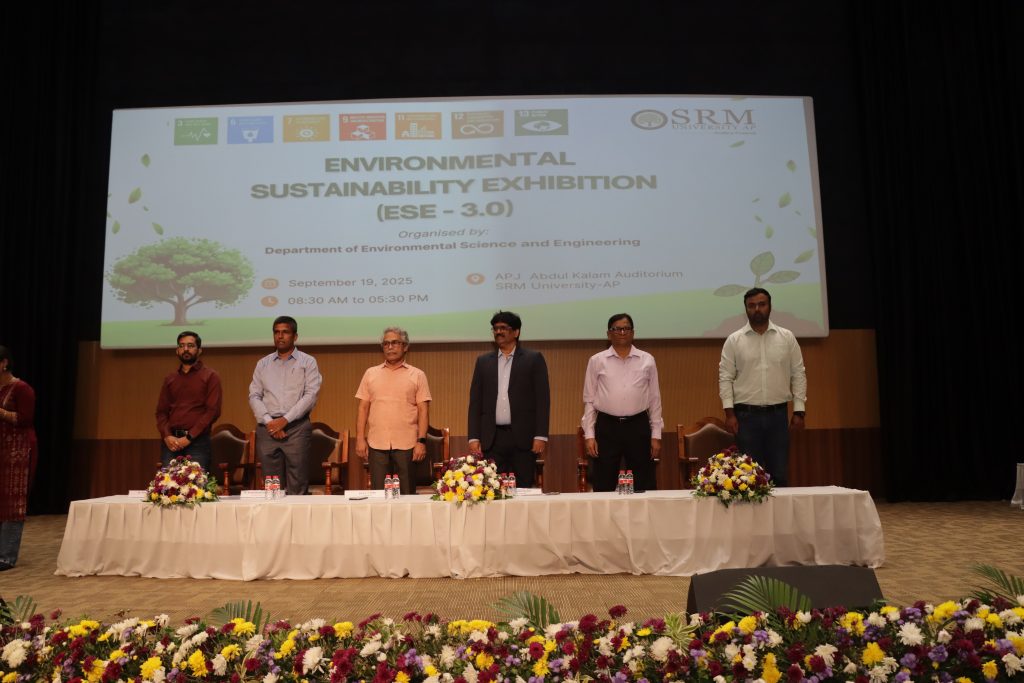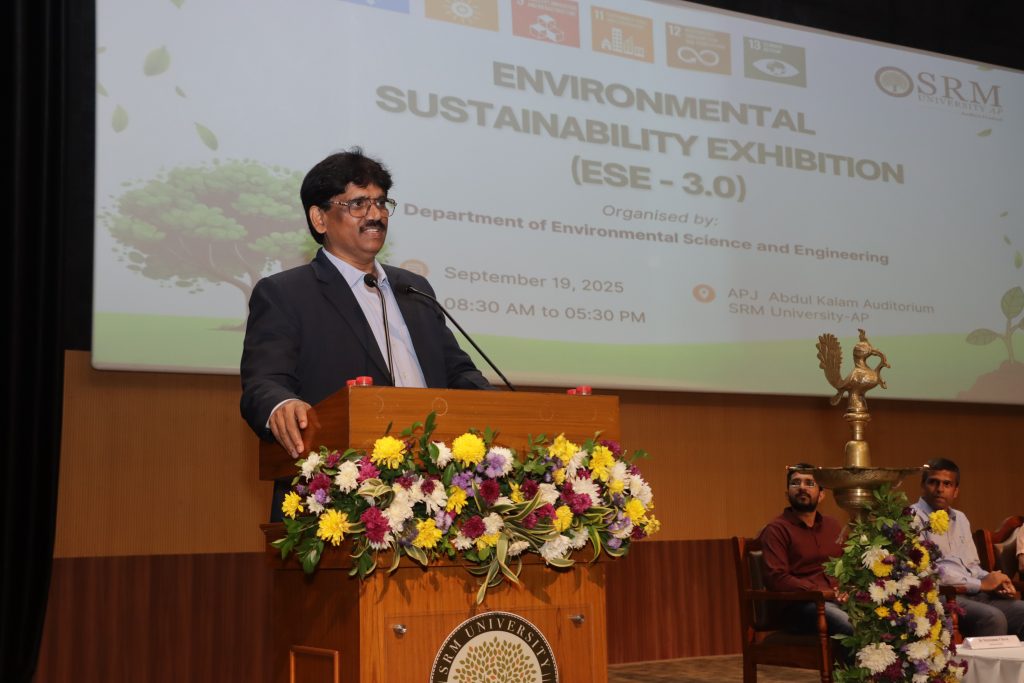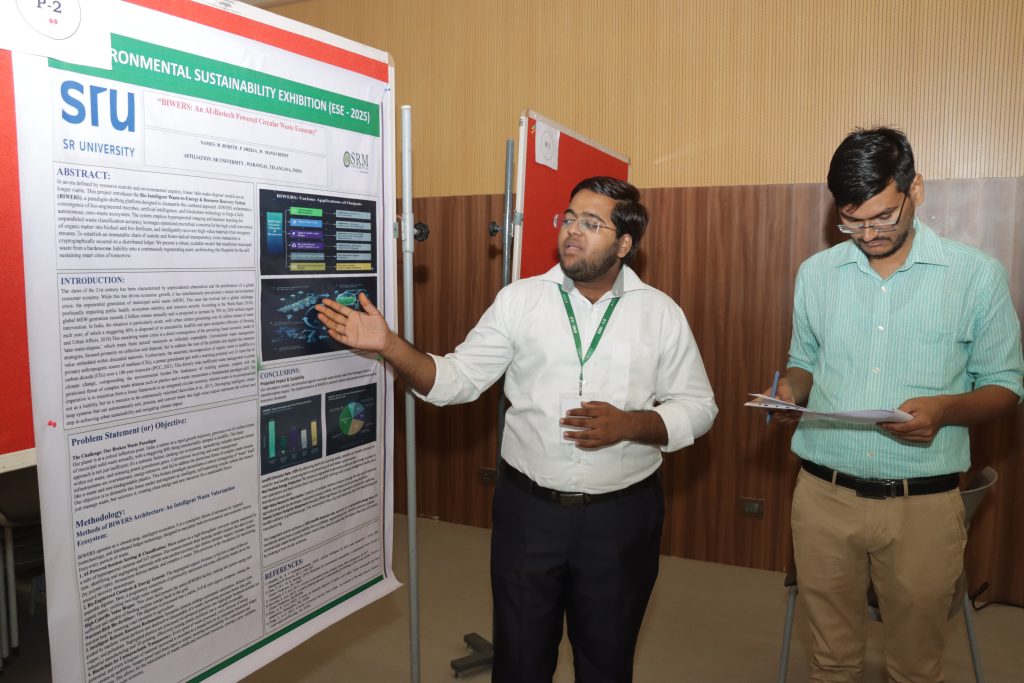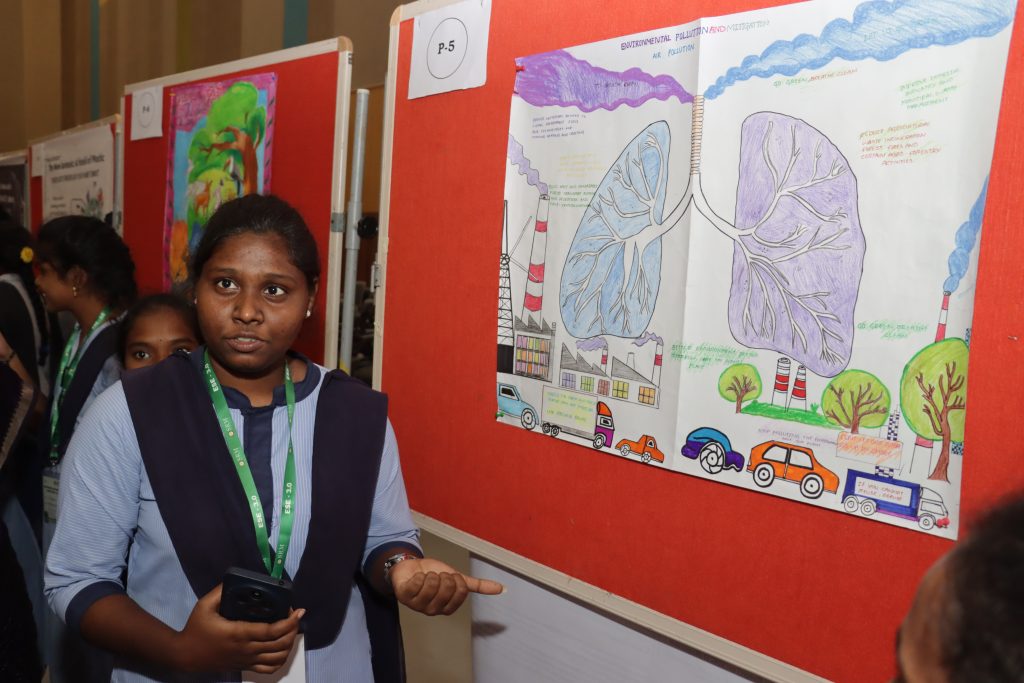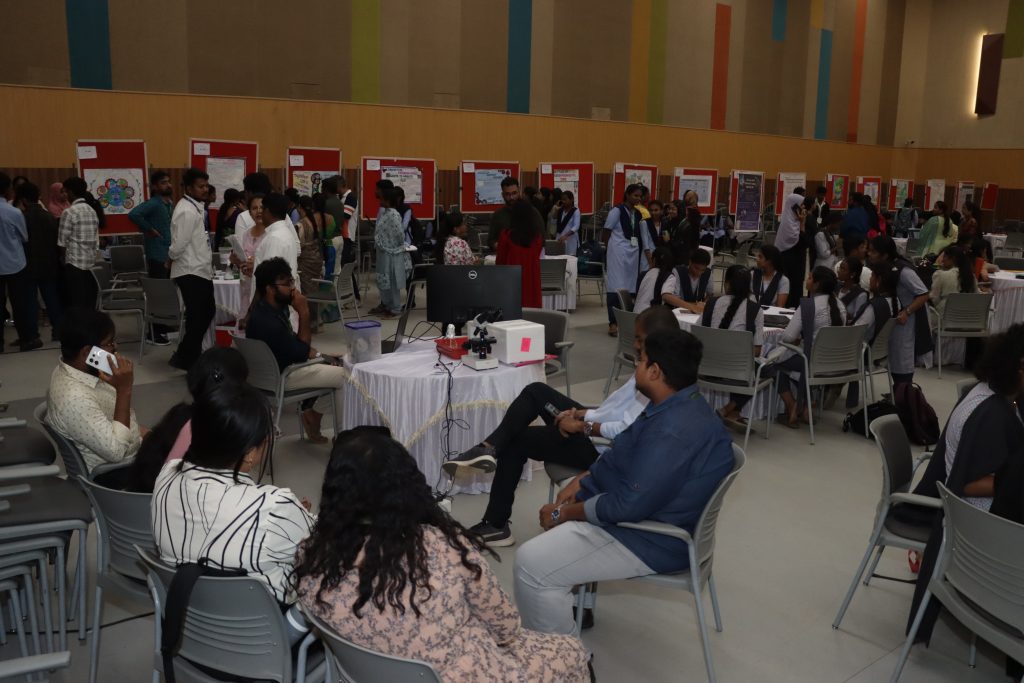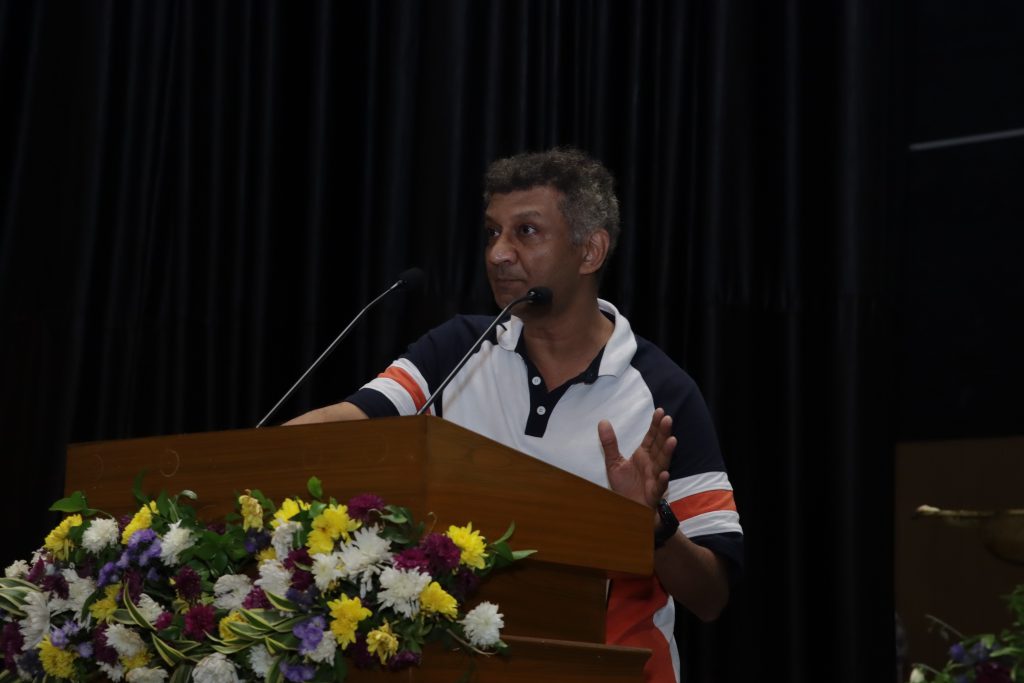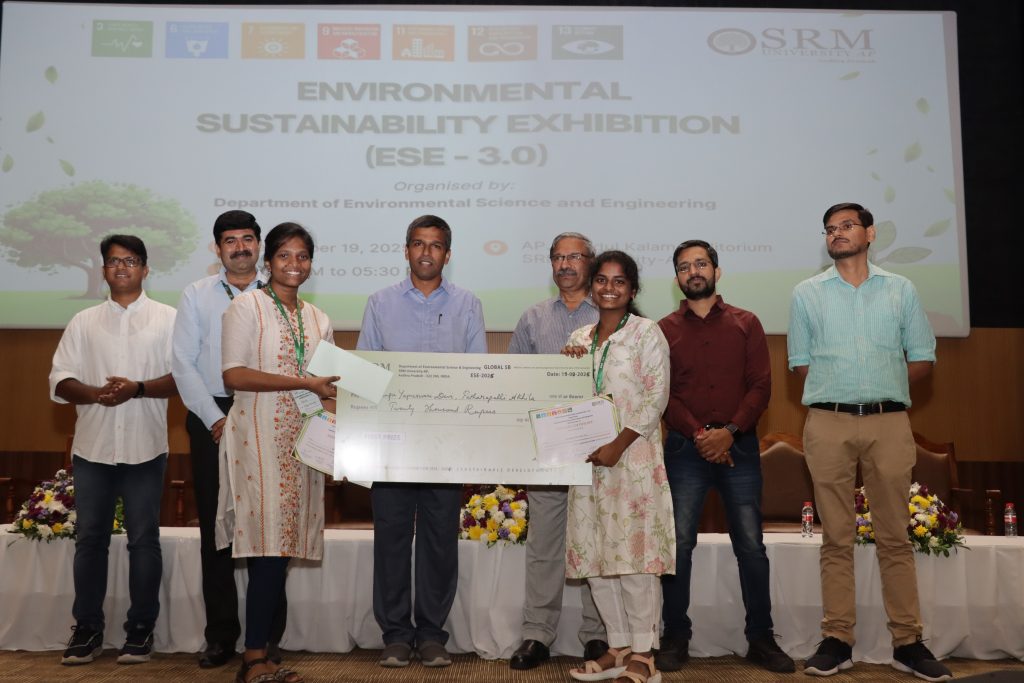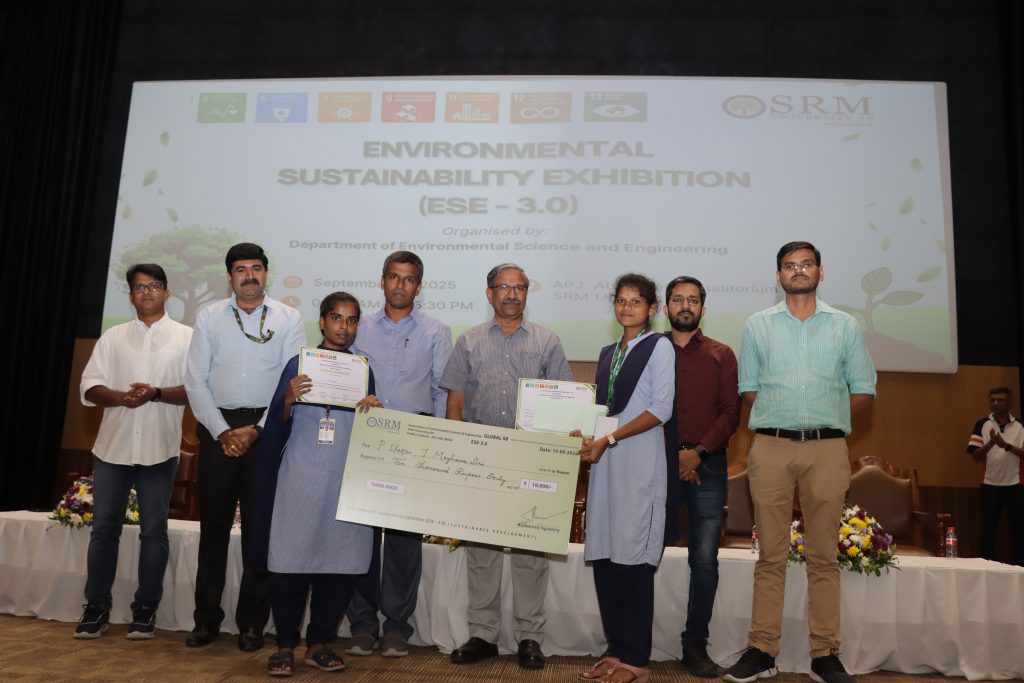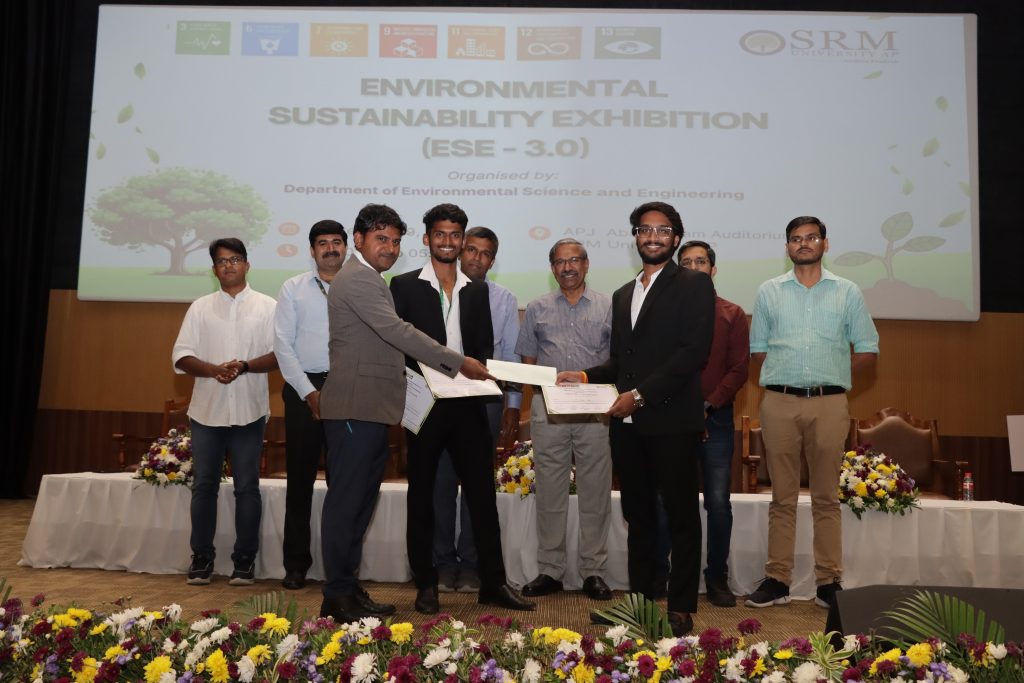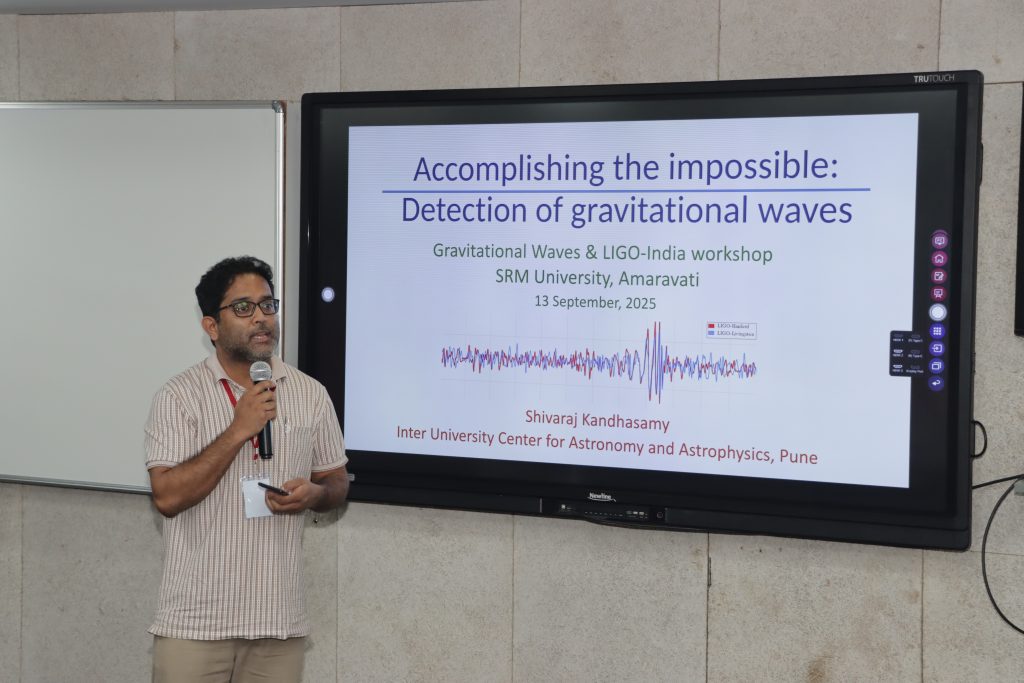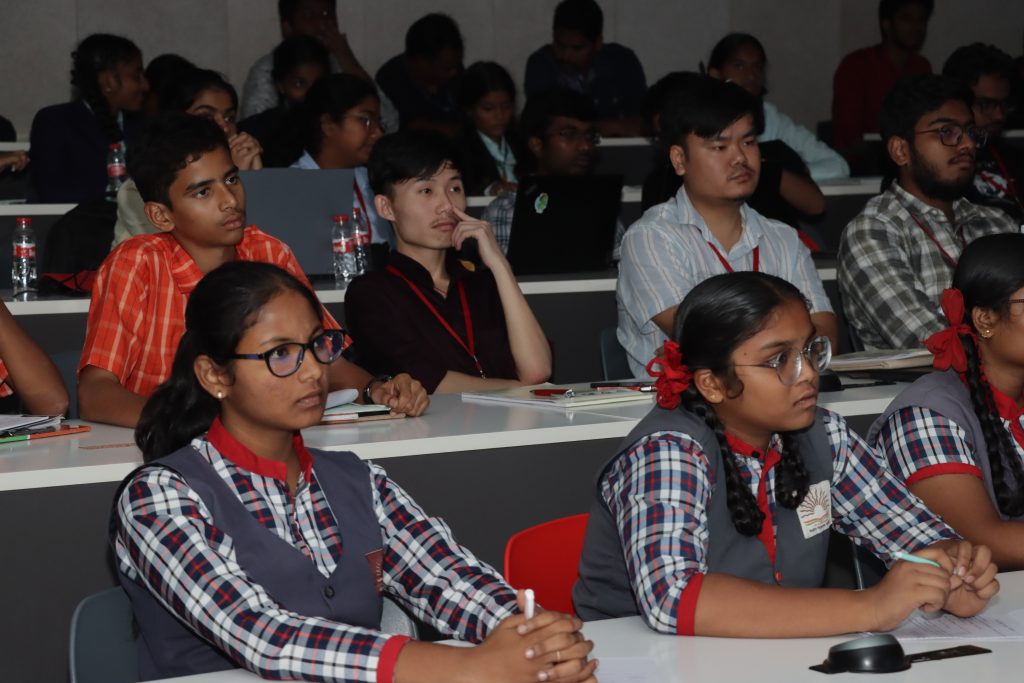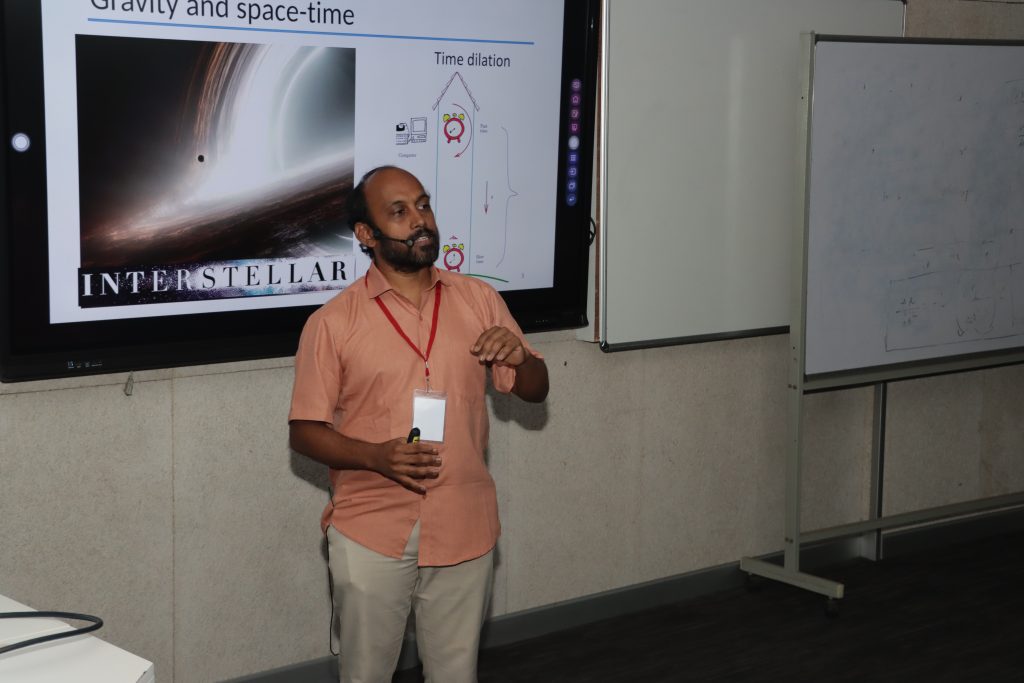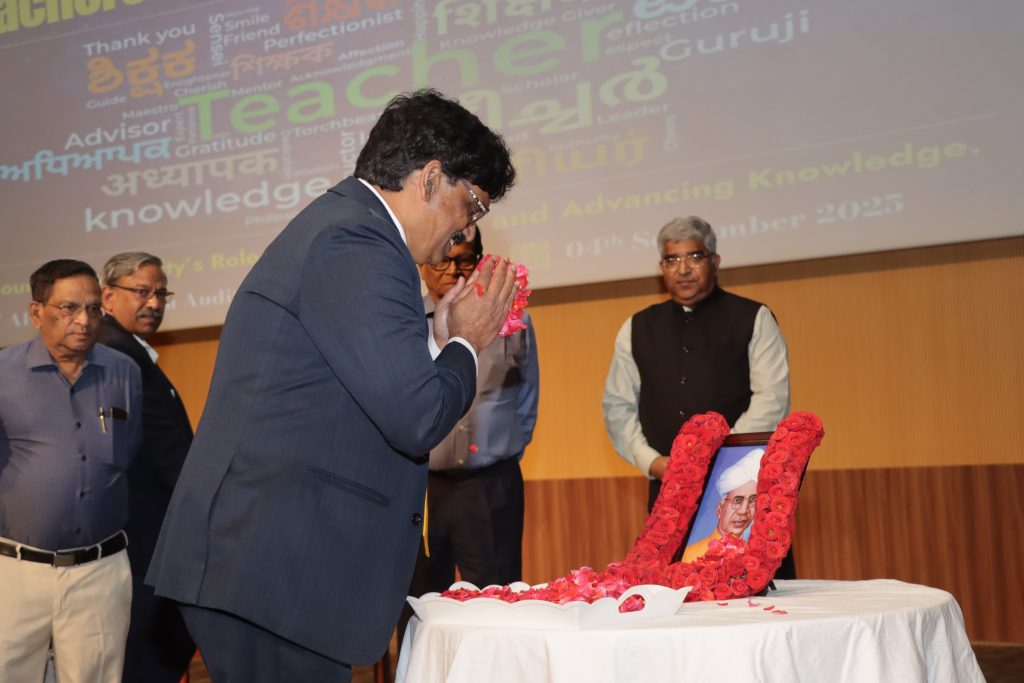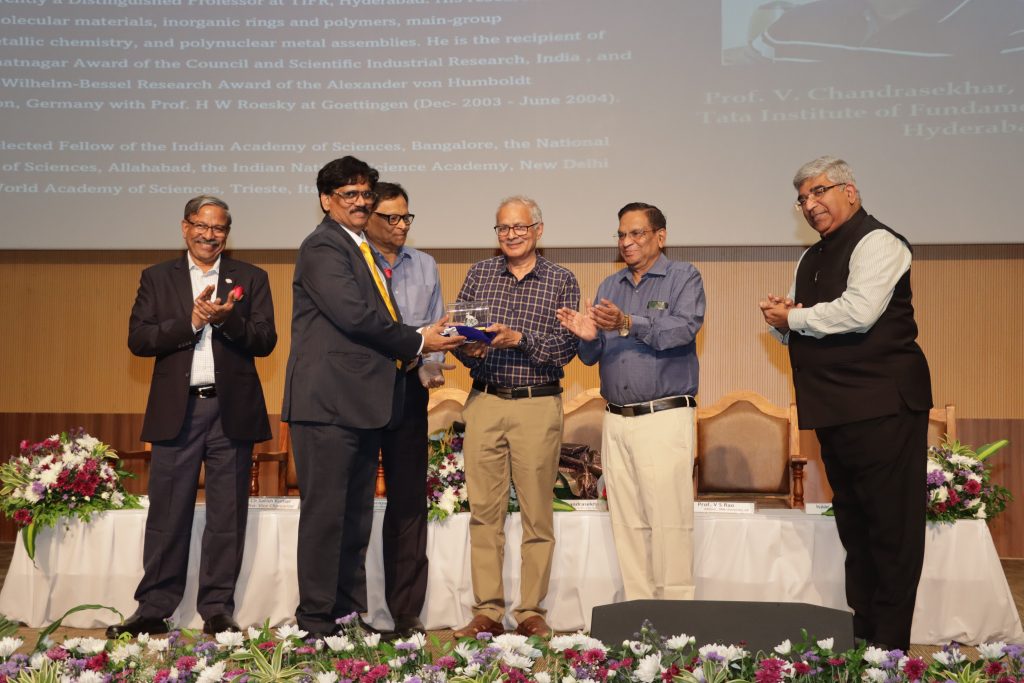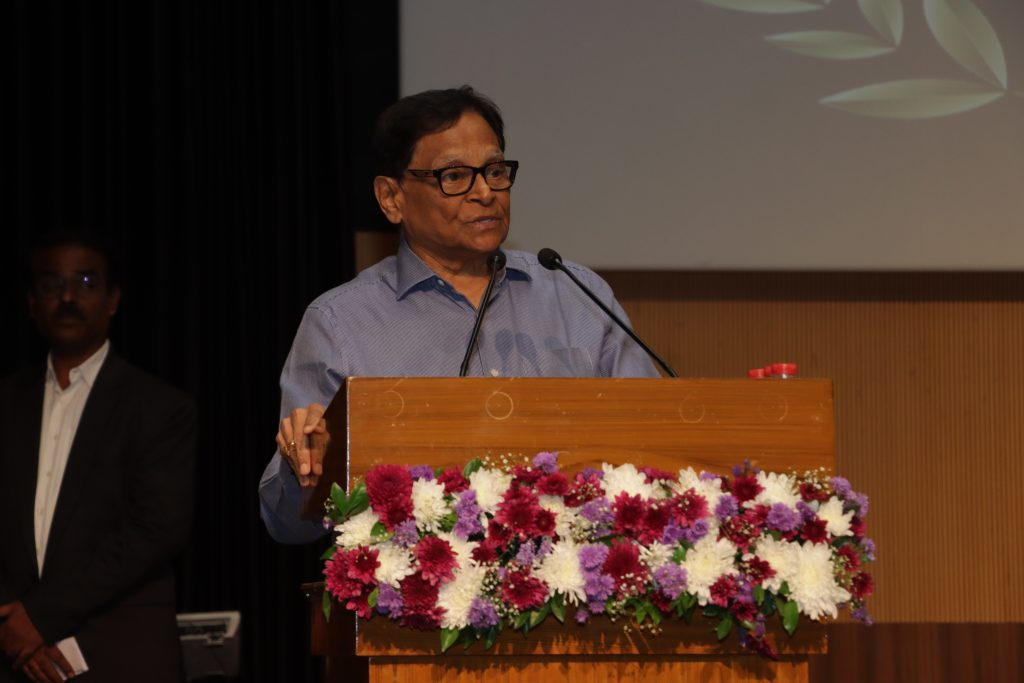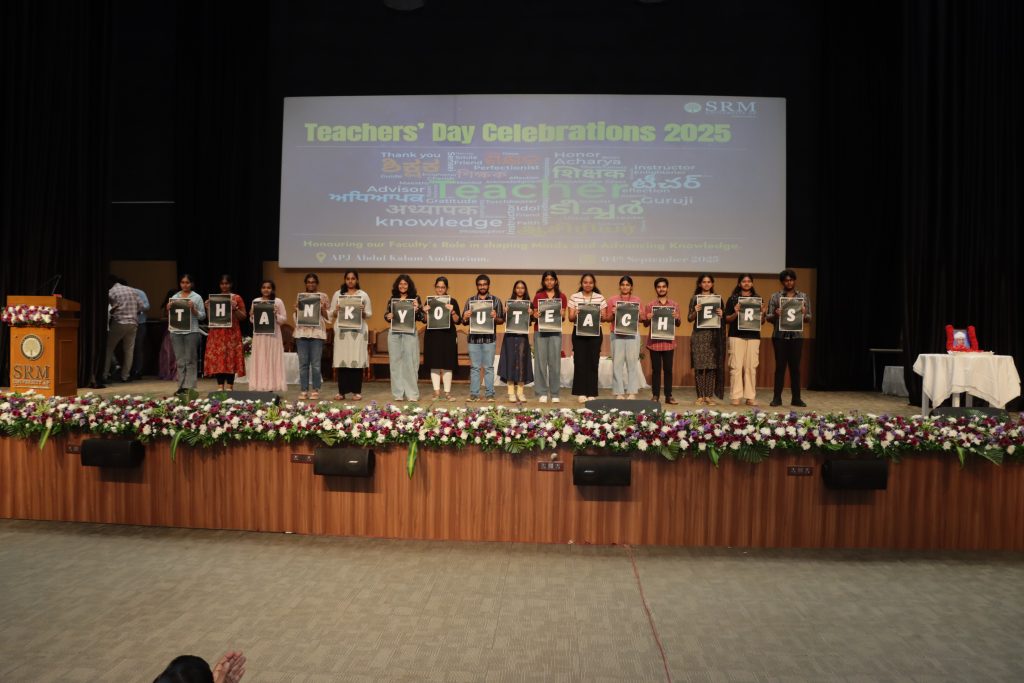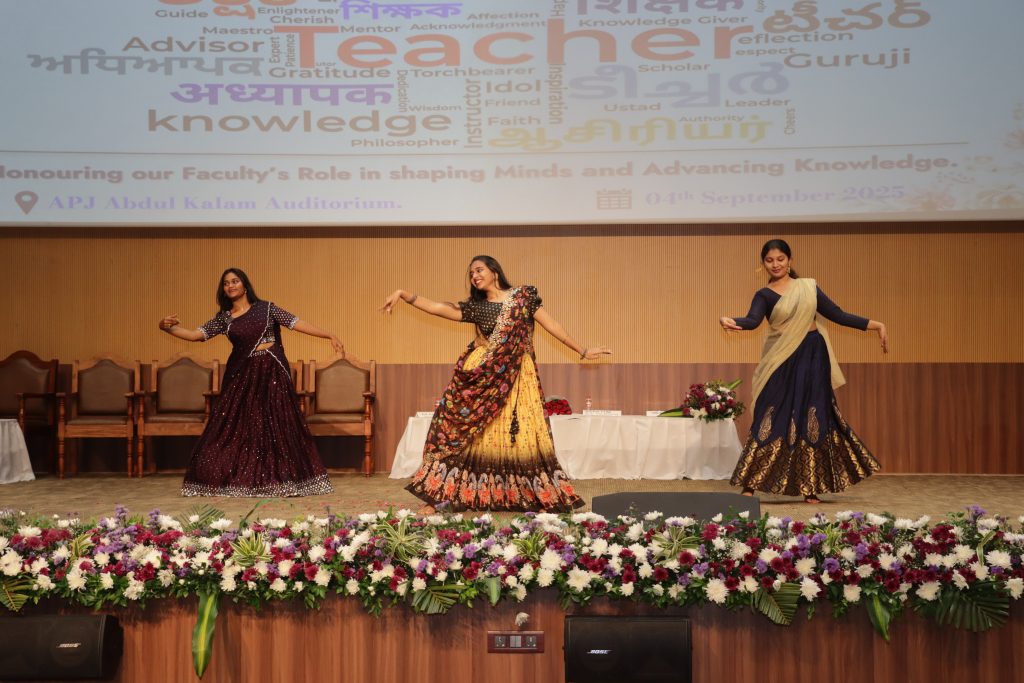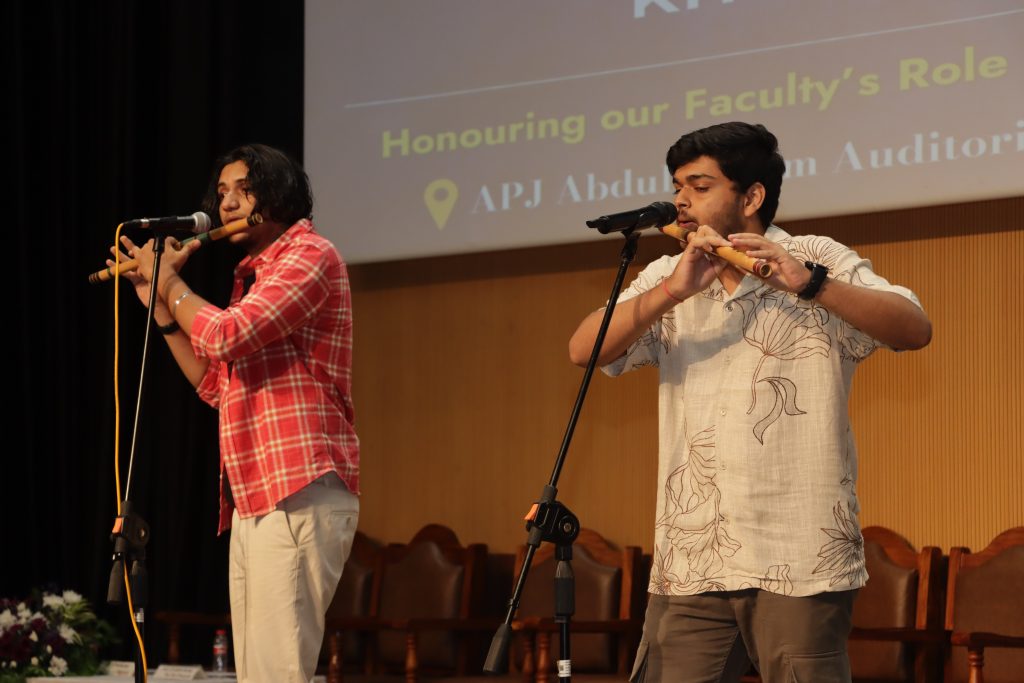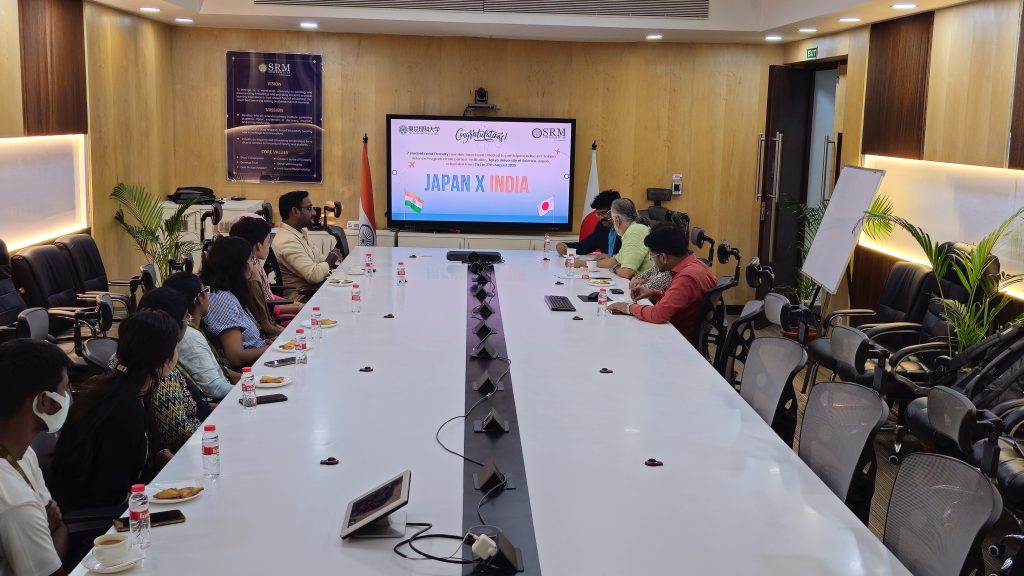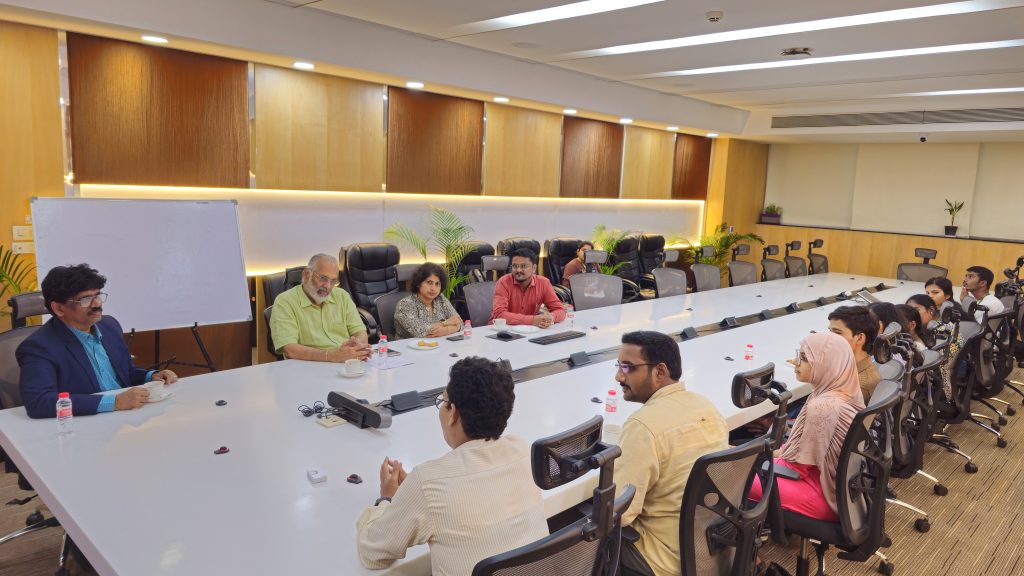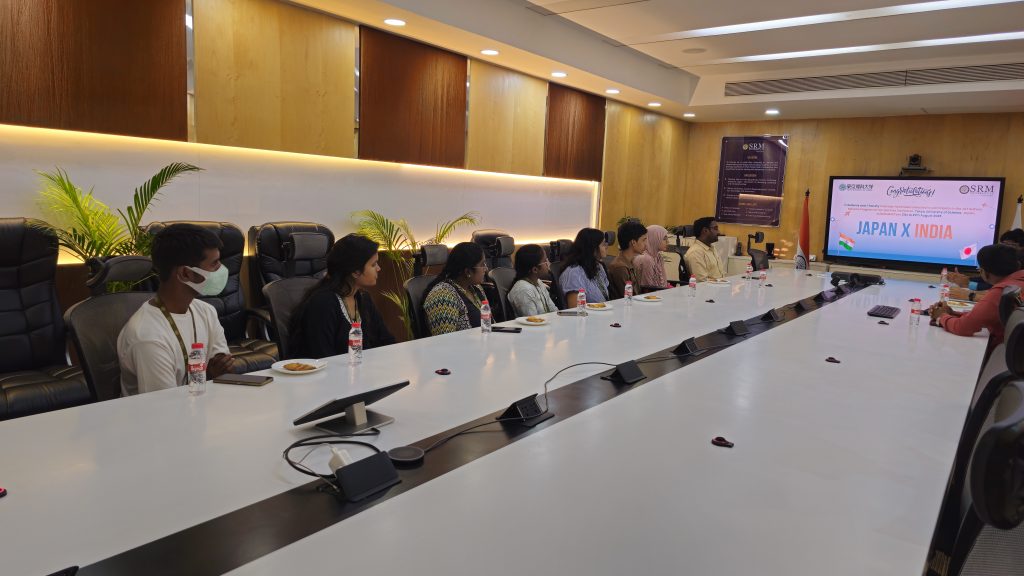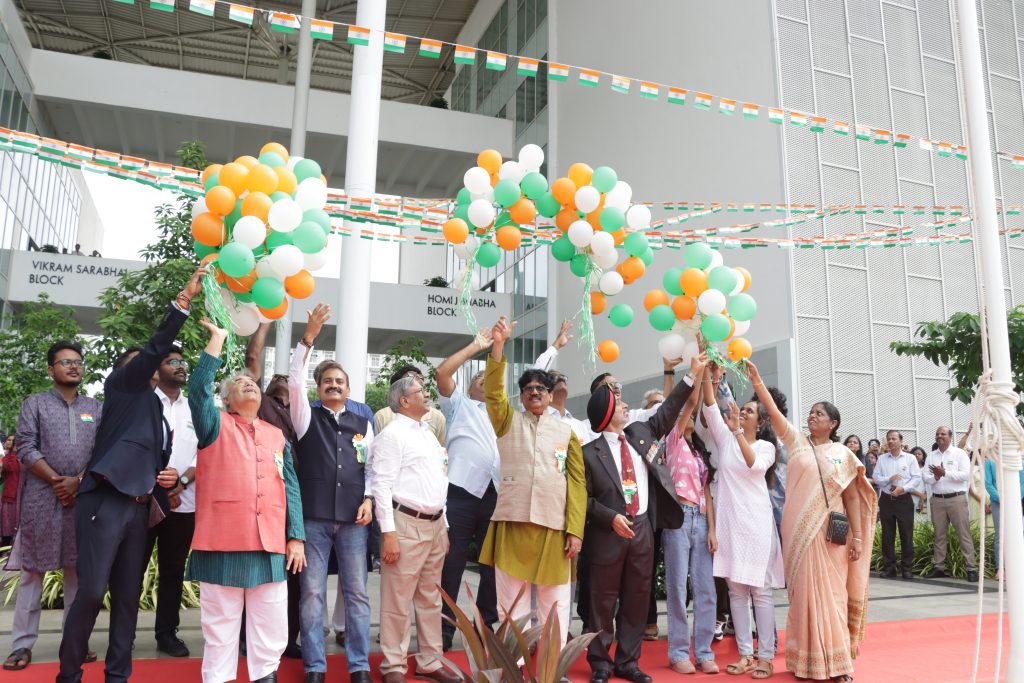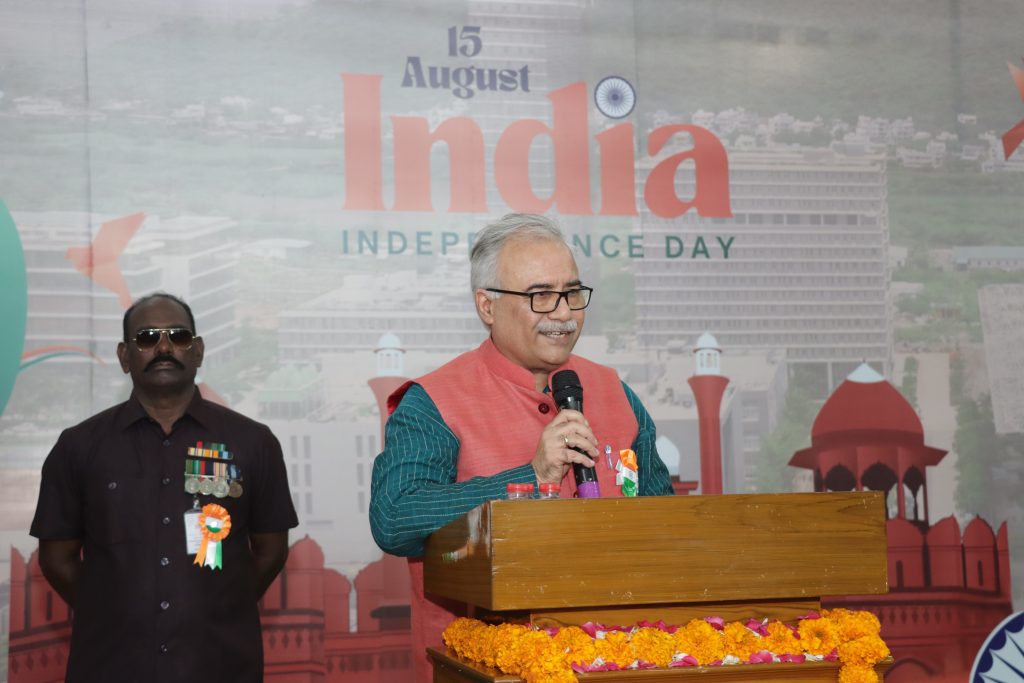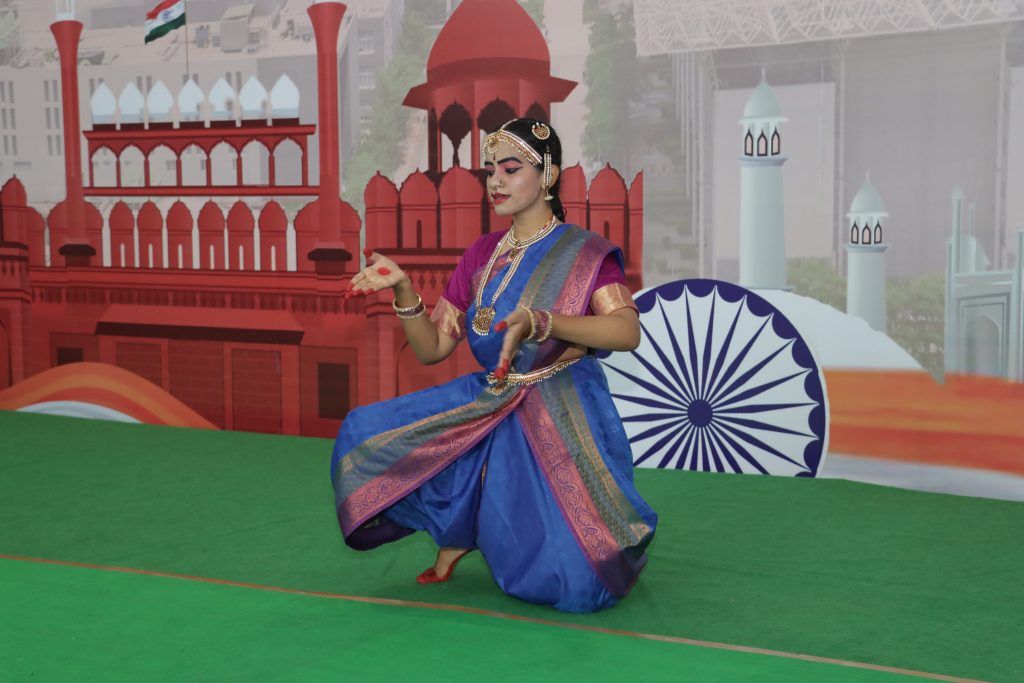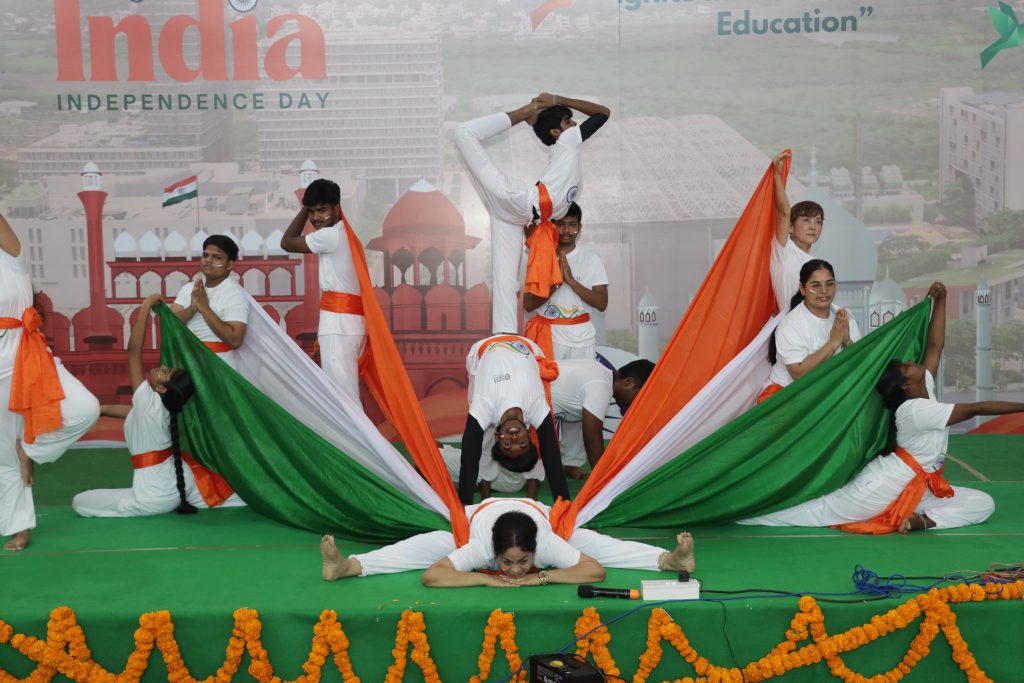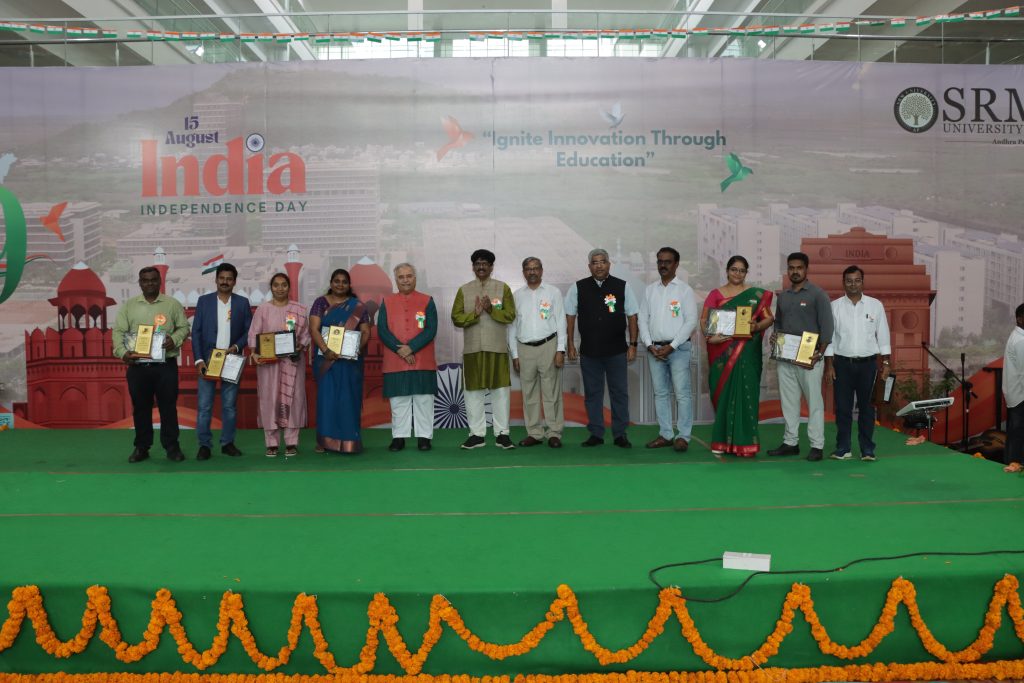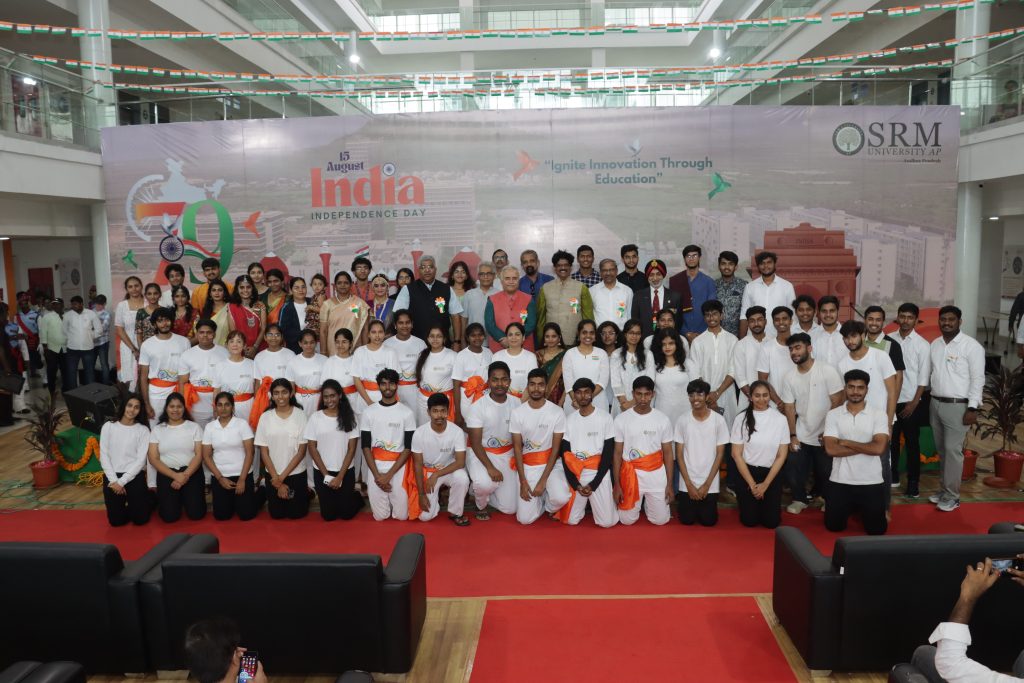Seven Professors Ranked Among World’s Top 2% Scientists by Stanford University
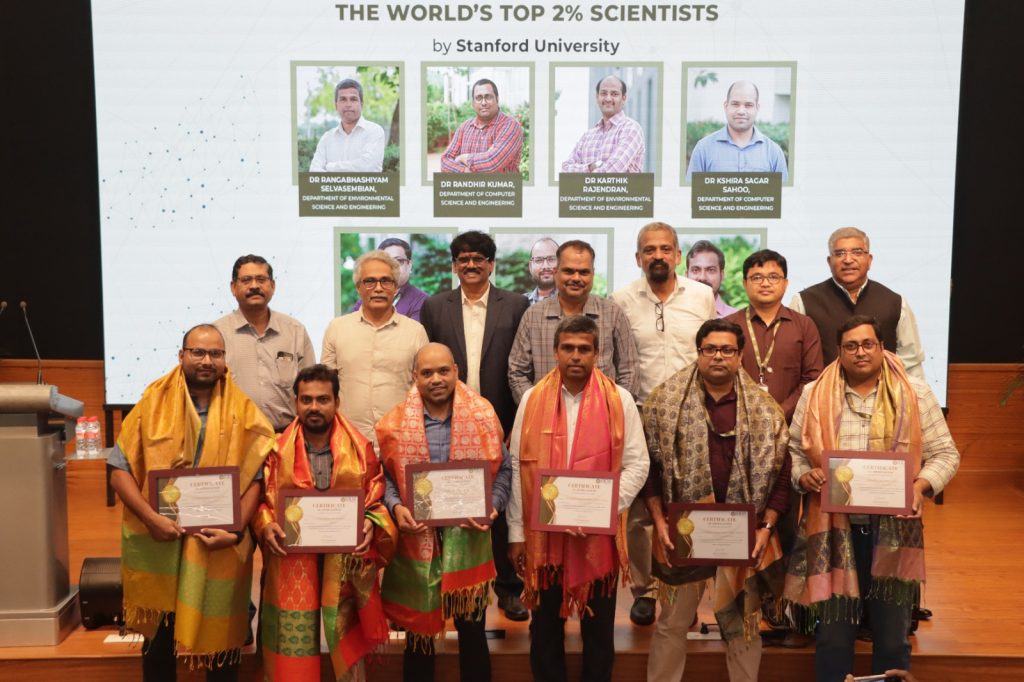
Seven of SRM AP’s distinguished faculty members have been recognised among the World’s Top 2% Scientists for the year 2025, a list published by Elsevier and compiled by Stanford University. This global recognition stands as a testament to the university’s expanding research footprint and the academic excellence of its scholars.
The honourees include Dr Rangabhashiyam Selvasembian, Associate Professor and Head, Department of Environmental Science and Engineering, in the domain of Earth and Environmental Sciences; Dr Karthik Rajendran, Associate Professor, Department of Environmental Science and Engineering, in the domain of Enabling and Strategic Technologies; Dr Randhir Kumar, Assistant Professor, Department of Computer Science and Engineering, in the domain of Information and Communication Technologies; and Dr Kshira Sagar Sahoo, Assistant Professor, Department of Computer Science and Engineering, in the domain of Information and Communication Technologies. In recognition of their achievement, these four scientists will also receive a cash award of ₹50,000/- each.
The other honourees are Dr Vinodkumar Etacheri, Associate Professor of Practice, Center for Interdisciplinary Research, in the domain of Enabling and Strategic Technologies; Dr Prabhujit Mohapatra, Assistant Professor, Department of Computer Science and Engineering, in the domain of Information and Communication Technologies; and Dr Pintu Bhunia, Assistant Professor, Department of Mathematics, in the domain of Functional Analysis and Operator Theory, making a total of seven SRM AP faculty members in the global list. This recognition underscores the university’s multidisciplinary research excellence and its commitment to advancing science, technology, and innovation to address global challenges.
Congratulating the scientists during the felicitation ceremony, Prof. Ch Satish Kumar, Vice Chancellor(I/C), said, “I am honoured to felicitate our faculty ranked among the world’s top 2% scientists by Stanford University. They are role models for colleagues and society alike. This recognition is a proud moment for SRM University-AP and a validation of the world-class research culture we nurture. The global impact of our faculty not only advances scientific knowledge but also inspires our students to innovate fearlessly and contribute meaningfully to society.”
The event concluded with a vote of thanks delivered by Mr Issac Samala Gerard, Director-HR, who lauded the faculty for their achievements and encouraged them to continue raising the bar, thereby strengthening SRM University-AP’s presence on the global research map.
- Published in News, Research News
Sustainable Development in the BRICS Economies
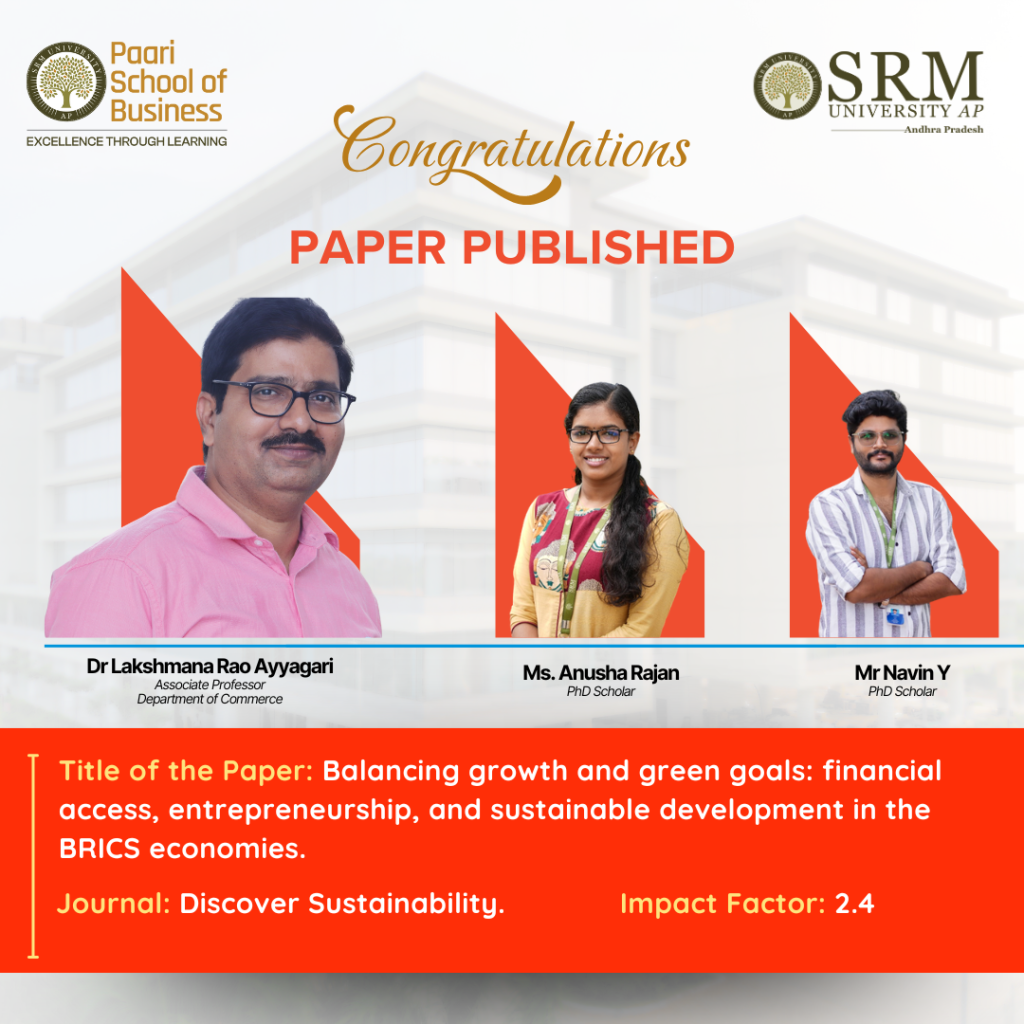 Imagine a world where economic growth of a society is done sustainably and with environmental care. Dr Lakshmana Rao Ayyagari, Assistant Professor, Department of Commerce, along with his scholars Mr Navin Y and Ms Anusha Rajan, has published an article “Balancing Growth and Green Goals: Financial Access, Entrepreneurship, and Sustainable Development in the BRICS Economies” in the Q1 journal Discover Sustainability, that looks at how countries like Brazil, Russia, India, China, and South Africa (BRICS) can support entrepreneurs without hurting the planet. The goal is to help governments, banks, and businesses grow responsibly by making sure financial tools support both money-making and environmental care.
Imagine a world where economic growth of a society is done sustainably and with environmental care. Dr Lakshmana Rao Ayyagari, Assistant Professor, Department of Commerce, along with his scholars Mr Navin Y and Ms Anusha Rajan, has published an article “Balancing Growth and Green Goals: Financial Access, Entrepreneurship, and Sustainable Development in the BRICS Economies” in the Q1 journal Discover Sustainability, that looks at how countries like Brazil, Russia, India, China, and South Africa (BRICS) can support entrepreneurs without hurting the planet. The goal is to help governments, banks, and businesses grow responsibly by making sure financial tools support both money-making and environmental care.
Abstract
Financial access is a cornerstone of entrepreneurship and a key enabler of economic development. This study examines the dual role of financial systems in promoting entrepreneurial growth and sustainable development across BRICS nations (2000–2023). Using robust PLS-SEM analysis, the research reveals that while financial access drives business formation and economic resilience, it also poses ecological challenges through resource overuse and pollution. The findings highlight a paradox: the same financial mechanisms that foster progress can strain environmental sustainability. The study proposes actionable strategies to align finance with green development goals.
Practical Implementation / Social Implications of the Research
- Policy Impact: Informs BRICS governments to introduce green credit quotas, eco-tax incentives, and sustainability assessments in funding policies.
- Financial Sector Reform: Encourages banks to incorporate environmental risks into lending practices.
- Community Empowerment: Highlights the importance of inclusive entrepreneurship programs, especially for rural and marginalized communities.
- Sustainability Education: Provides a foundation for integrating sustainability into entrepreneurship curricula and public discourse.
Future Research Plans
- Explore the role of blockchain and AI in promoting transparent, sustainable financial systems.
- Investigate gender and social equity in sustainable entrepreneurship ecosystems.
- Conduct comparative studies on green finance policy innovations beyond BRICS (e.g., ASEAN or African Union).
- Develop longitudinal, mixed-methods frameworks to assess cultural, institutional, and digital factors in sustainability transitions.
Link to the Article
- Published in Commerce Current Happenings, Departmental News, News, Research News
Transforming IoT Performance: Deep Learning in the Fog–Cloud Continuum
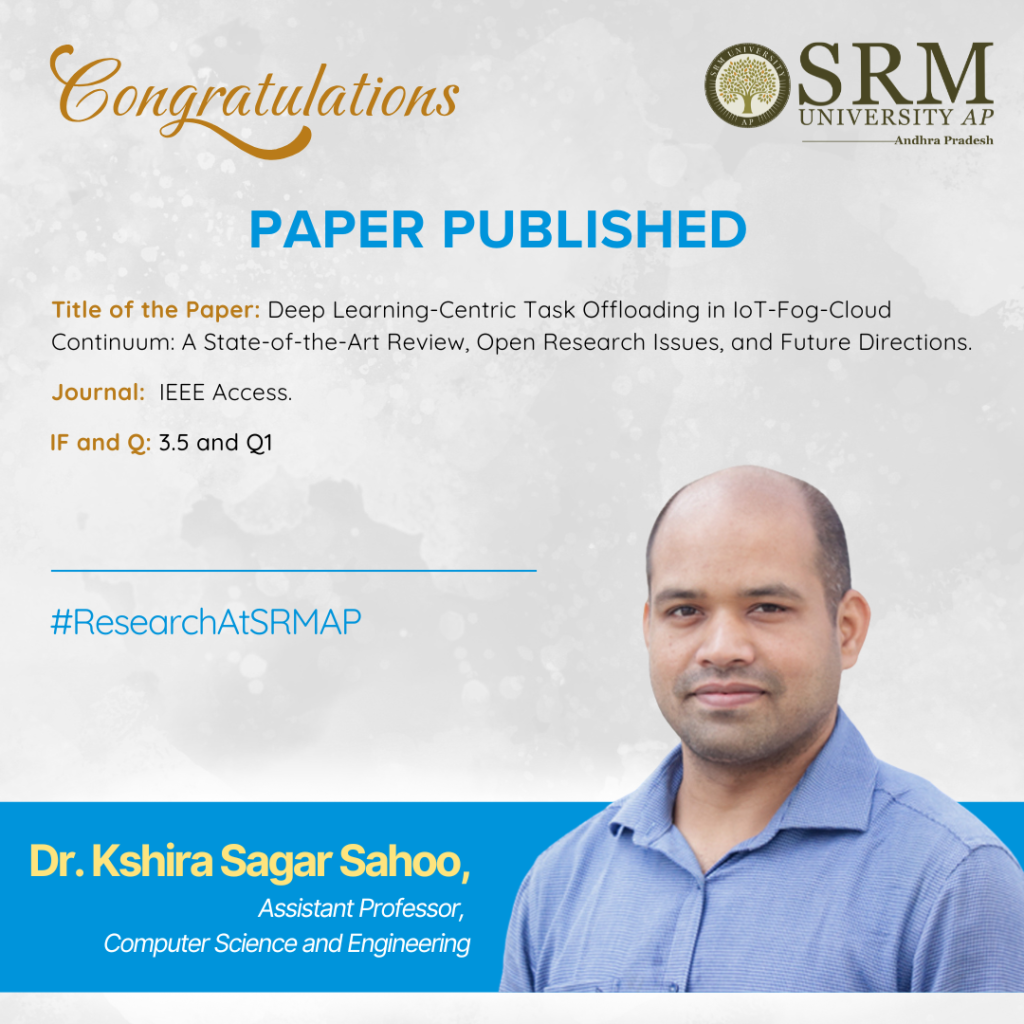
In the paper titled “Deep Learning-centric Task Offloading in IoT-Fog-Cloud Continuum: A State-of-the-Art Review, Open Research Issues and Future Directions,” by Dr Kshira Sagar Sahoo, Assistant Professor, Department of Computer Science and Engineering, and collaborators, the role of machine learning and deep learning in optimising IoT systems is comprehensively reviewed. Published in IEEE Access (2025), the study examines how intelligent task offloading and resource allocation across the fog–cloud continuum can address challenges of latency, bandwidth, and privacy. The article highlights key open issues and future directions, offering insights for developing faster, more reliable, and secure IoT applications in domains such as healthcare, smart cities, autonomous vehicles, and industrial IoT.
Abstract
The rapid growth of IoT and real-time applications has created massive volumes of data, which are traditionally processed in cloud-centric systems. This approach often suffers from high latency, bandwidth limitations, and privacy risks. Fog computing, by bringing computation closer to IoT devices, offers a promising solution. Our study provides a comprehensive review of task offloading and resource allocation in fog–cloud continuum, with a focus on machine learning and deep learning–based approaches.
Explanation in Layperson’s Terms
With billions of smart devices (like wearables, sensors, and cameras) generating data every second, sending everything to the cloud for processing can cause delays and strain the internet. Imagine if your smartwatch had to send your heartbeat data across the globe before alerting you of a health issue—that delay could be dangerous. Our research looks at how to use fog–cloud continuum, where nearby devices like routers or gateways help with computation instead of sending everything to the cloud.
Practical Implementation
Findings from this survey can help design smarter IoT systems where tasks are offloaded efficiently to nearby fog or edge devices, reducing latency and improving reliability. Key applications include:
- Healthcare monitoring (real-time alerts)
- Smart cities (traffic management, surveillance)
- Autonomous vehicles (low-latency decision-making)
- Industrial IoT (automation, predictive maintenance)
Social Impact
- Faster decision-making: Improves user safety and experience by cutting delays.
- Cost efficiency: Reduces operational costs by lowering dependence on cloud-only processing.
- Data privacy: Sensitive data can be processed closer to the source, enhancing security.
Collaborations
This research is a joint collaboration between:
- University of Saskatchewan, Saskatoon, SK, Canada
- GITAM Deemed to be University, Visakhapatnam, India
- SRM University-AP
Future Research Plans
- Developing lightweight, explainable AI models for task offloading on constrained IoT devices.
- Extending research into cybersecurity in IoT–Fog–Cloud systems, particularly DDoS detection and mitigation.
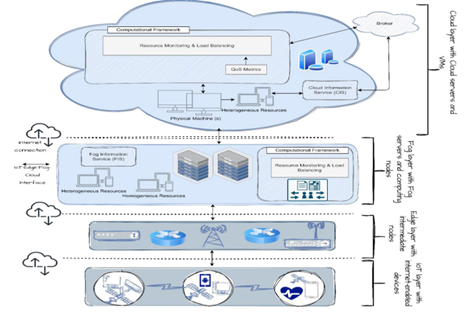
- Published in CSE NEWS, Departmental News, News, Research News
Innovating for a Greener Future: Environmental Sustainability Exhibition 3.0 at SRM AP
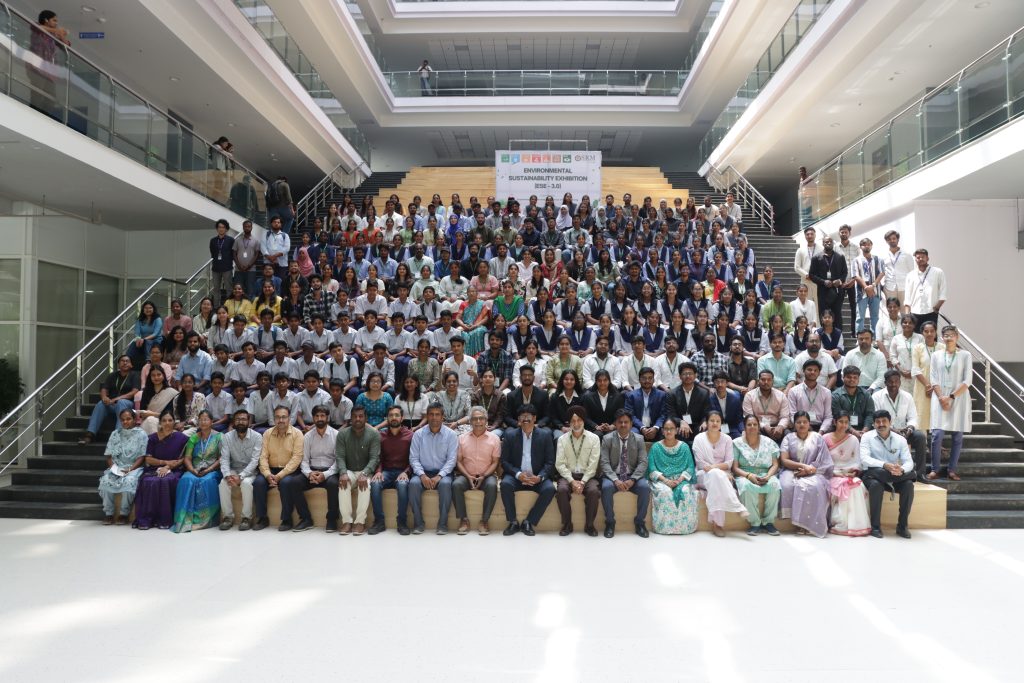
The Department of Environmental Science and Engineering, successfully hosted the third edition of the Environmental Sustainability Exhibition (ESE 3.0), a national-level platform dedicated to advancing knowledge, innovation, and collaboration in environmental protection and sustainable technologies, on September 19, 2025.
The event was inaugurated by Prof. Ch Satish Kumar, Vice Chancellor (I/C), who declared the exhibition open in the esteemed presence of Prof. C V Tomy, Dean of the School of Engineering and Sciences, Dr Rangabhashiyam Selvasembian, Associate Professor and Head of the Department of Environmental Science and Engineering, along with the, Heads of Departments, faculty members, staff, and students from various Universities and schools around the region.
In his inaugural address, Prof. Satish Kumar, Vice-Chancellor (I/C) , connected the exhibition’s vision to global efforts, stressing, “Sustainability is not an abstract idea but a responsibility towards future generations. Platforms like ESE 3.0 enable students to dream, innovate, and contribute to India’s commitment towards the United Nations’ Sustainable Development Goals and the Paris Climate Agreement.” He also emphasised the importance of achieving net zero emissions, drawing examples from states like Sikkim and nations like Bhutan.
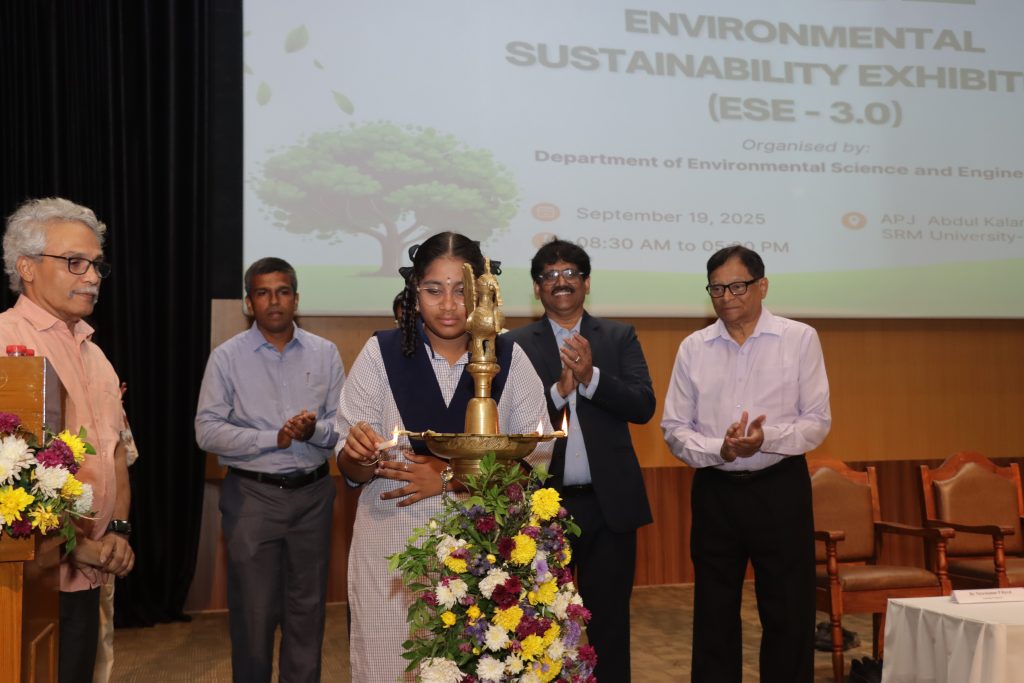
Carrying forward the legacy of the successful ESE 1.0 (2024) and ESE 2.0 (March 2025), this edition brought together 155 participants, hailing from states such as Punjab, Bihar, Telangana, and Andhra Pradesh. Around 60 exhibits, including 23 posters, 10 demos, and 25 oral presentations, represented prestigious colleges and universities nationwide. Each showcased innovative ideas rooted in their local contexts and challenges.
The top three winners were awarded a prize pool of ₹20,000, ₹15,000, and ₹10,000. Team P Akhila & V Yagneswari (Aditya University) secured the first prize, followed by Swarna Baisa & Bhanu Naik Jaloth (SR University, Warangal) and J Meghanasiri & P Sharon (SRR & CVR Govt. Degree College), who were awarded the second and third prizes, respectively.
Addressing the gathering, Dr Rangabhashiyam Selvasembian noted: “ESE 3.0 serves as an exceptional platform for students across India to present innovative ideas and initiatives for building a sustainable future. It motivates them to showcase their projects, interact with experts, and contribute meaningfully to the ongoing discourse on sustainability.”
Prof. C V Tomy further emphasised the importance of personal responsibility in everyday choices: “Every technological advancement, while beneficial, has an environmental cost. Even small, mindful actions such as conserving water and electricity make a significant difference when adopted collectively. Cultivating these habits early is the foundation of sustainability.”
The exhibition highlighted themes of air and water pollution mitigation, resource optimisation, sustainable development practices, waste management, renewable energy, and circular economy models. Participants presented working models, prototypes, posters, and research-based solutions, fostering rich academic exchange and dialogue.
Beyond the exhibition stalls, the event also included Poster presentations on climate change, environmental health, and resource equity, Hands-on training sessions introducing sustainability-driven advancements, Laboratory and campus visits offering exposure to SRM-AP’s state-of-the-art facilities and cutting-edge environmental research infrastructure.
With enthusiastic participation, thought-provoking exhibits, and meaningful interactions, ESE 3.0 reaffirmed SRM University-AP’s role as a hub for environmental innovation and sustainability research, dedicated to shaping solutions for the most pressing global challenges.
- Published in Departmental News, ENVS News, News, Research News
“Phy-Spark 3.0” – Igniting a Passion for Astrophysics
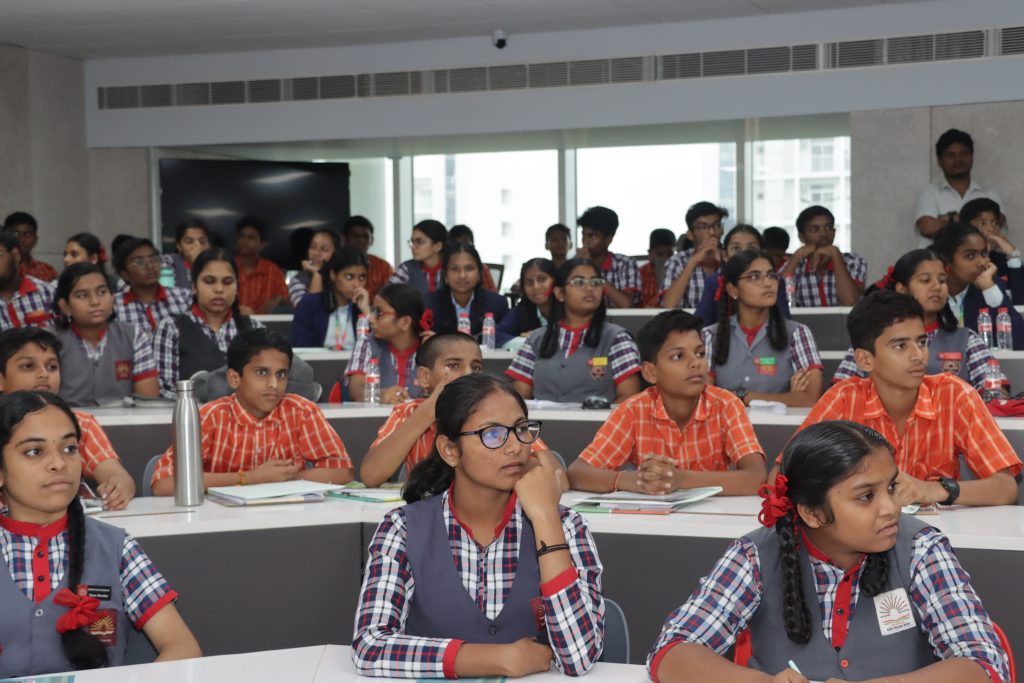
SRM University-AP hosted Phy-Spark 3.0: Stars, Scopes & Spacetime on September 13, 2025, as an outreach initiative for school students. A combination of lectures, experiments, demonstrations, and interactive sessions took place throughout the day-long programme introducing young students to the exciting fields of physics and astrophysics. 120 students from Geethanjali School, Kunchana, K V School, Nallapadu and Vijetha School, Guntur participated in the programme.
A public lecture delivered by Dr Shivaraj Kandhasamy, renowned scientist from the Inter-University Centre for Astronomy and Astrophysics (IUCAA), Pune, on the Detection of Gravitational Waves by LIGO was the highlight of the programme. Dr Kandhasamy explained how gravity shapes the fabric of spacetime and introduced the concept of gravitational waves. He walked through the historic Michelson-Morley experiment, the design and functioning of the Laser Interferometer Gravitational-Wave Observatory (LIGO), and the challenges of detecting such incredibly faint signals. The lecture also covered landmark detections, including gravitational waves generated from black hole mergers and binary neutron star collisions.
Expert faculty members Dr Gangireddy Salla, Dr Ashmita Das, and Dr Krishna Prasad Maity from the Department of Physics of SRM AP delivered academic sessions on several intriguing topics such as Telescope: Fundamentals and Designs, Binary Star Systems and General Theory of Relativity. The lectures were followed by a lab visit and live demonstrations of telescopes, binary star experiment using LED bulbs, Michelson interferometer etc., and an interactive Q&A session facilitating hands-on experiential learning on astronomical observations, scientific equipment, and the application of ideas they had learned in theory.
The programme conducted to ignite the spirit of learning physics among the budding minds of school students was a resounding success. Through Phy-Spark 3.0, SRM University-AP successfully made complex concepts in physics and astrophysics accessible to school students providing them with a glimpse of how physics is applied in real-world research environments. The event was coordinated by Dr Pranab Mandal, Dr Gangireddy Salla and Dr Soumyajyoti Biswas of SRM AP.
- Published in Departmental News, News, Physics News
Exploring History through Cinema: Screening of Sadgati
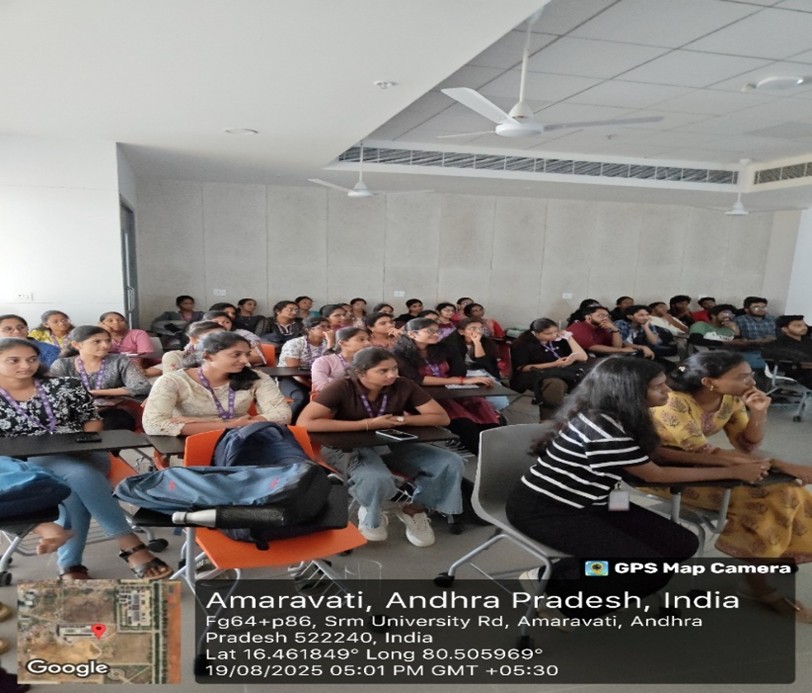
The History and Heritage Club screened the movie Sadgati (1981) on Aug 19, 2025, that gave students a chance to experience one of the significant pages of Indian cultural and social history. Not only is Sadgati an excellent piece of cinema, but it is also a written account of history because of the way the traditions, usages, and hierarchies influenced the lives in the past.
The telefilm is a landmark in Satyajit Ray’s career, as this was his first film which produced in collaboration with the television. In addition to its artistic mastery, the film is also historically relevant since it speaks of the social realities deeply embedded in the society of India, rural India in particular, the social realities of caste and inequality.
The motivating theme of the event was to influence students to regard film as a historical text, like literature and archival records, that expresses and critiques society. Participants learned the historical experiences of injustice to social equality in our current society by becoming immersed in the film.
The screening developed a ripple effect as it made the students think about how history can define society and how art remains a provocation and a life changing factor.
- Published in Departmental News, History Current Happenings, News
Teachers’ Day 2025: SRM AP Recognises Ten Faculty with Excellence Awards
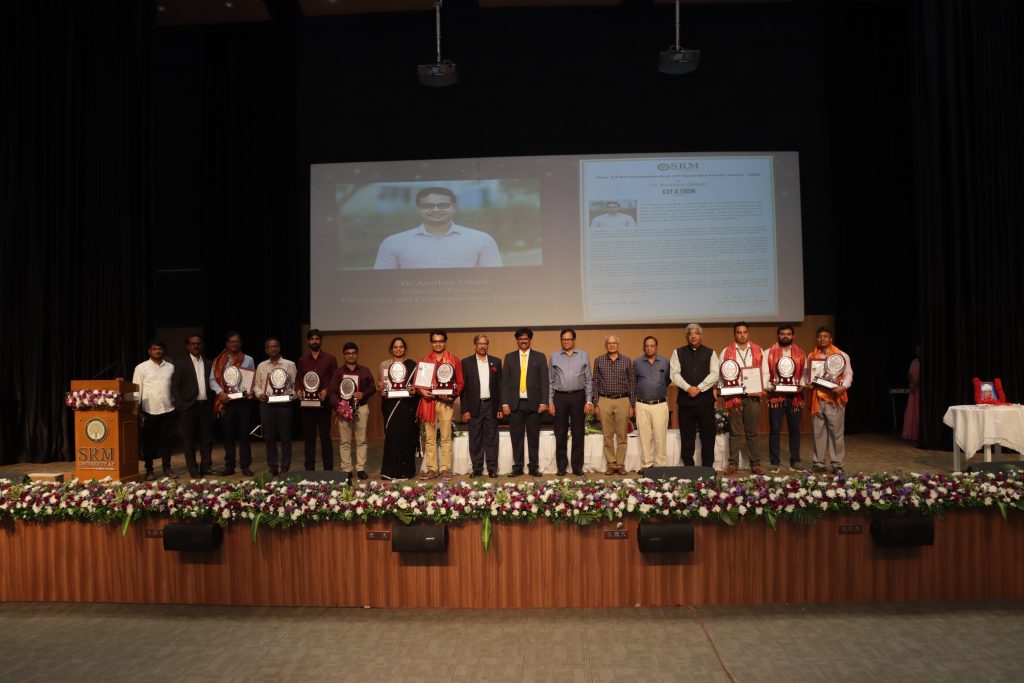
SRM University-AP observed Teachers’ Day 2025 by honouring its faculty members for their contribution to teaching, research, and institutional growth. The celebration was attended by the Chief Guest, Prof. V Chandrasekhar, Visiting Distinguished Professor, Tata Institute of Fundamental Research, Hyderabad, along with SRM Group Research Executive Director, Prof. D Narayana Rao; Advisor-SRM Group, Prof. V S Rao; Pro Vice Chancellor, Prof. Ch Satish Kumar; Registrar, Dr R Premkumar; Deans; Directors; Faculty, Staff and Students of the varsity.
Pro Vice-Chancellor in his welcome address remarked on how teachers hold the ability to transform students. Addressing the popular misconception of how AI can replace teachers, Prof. Satish remarked, “AI may advance to great extent, but it can never replace the profound impact of teachers. Just as a restaurant meal can never match a mother’s cooking, so too can AI never replicate the love and transformation that educators bring to their students’ lives.” He also added that, in his opinion, the most respected strata of teachers are the primary and secondary school teachers, as they lay the foundation of knowledge and discipline in students. He mentioned that the university teachers fine-tune the students’ future.
Chief Guest Prof. V Chandrasekhar underscored the transformative power of education and the lasting legacy that educators can impart to their students by sharing the inspiring story of Acharya Prafulla Chandra Ray, a notable scientist, educator, and nationalist, who pursued a career in chemistry only due to the profound impact of a dedicated teacher.
As part of the ceremony, University Outstanding Faculty Awards 2025 were presented to Prof. Ramesh Vaddi, Dr G V P Bhagath Singh, Dr Pradyut Kumar Sanki, Dr K A Sunitha, Dr Tousif Khan N, Dr Javid Ahmad Dar, Dr Lalitha Mohan Mohapatra, Dr Vineeth Thomas, Dr Jatis Kumar Dash, and Dr Saleti Sumalatha, recognising their academic contributions and commitment to excellence. Dr Anirban Ghosh, Associate Professor was awarded the Prof. V S Rao Foundation – Prof. H P Tiwari Best Faculty Award 2025 for his outstanding achievements in teaching and research. All the awardees were presented with mementos, certificates and a cash prize of 50k.
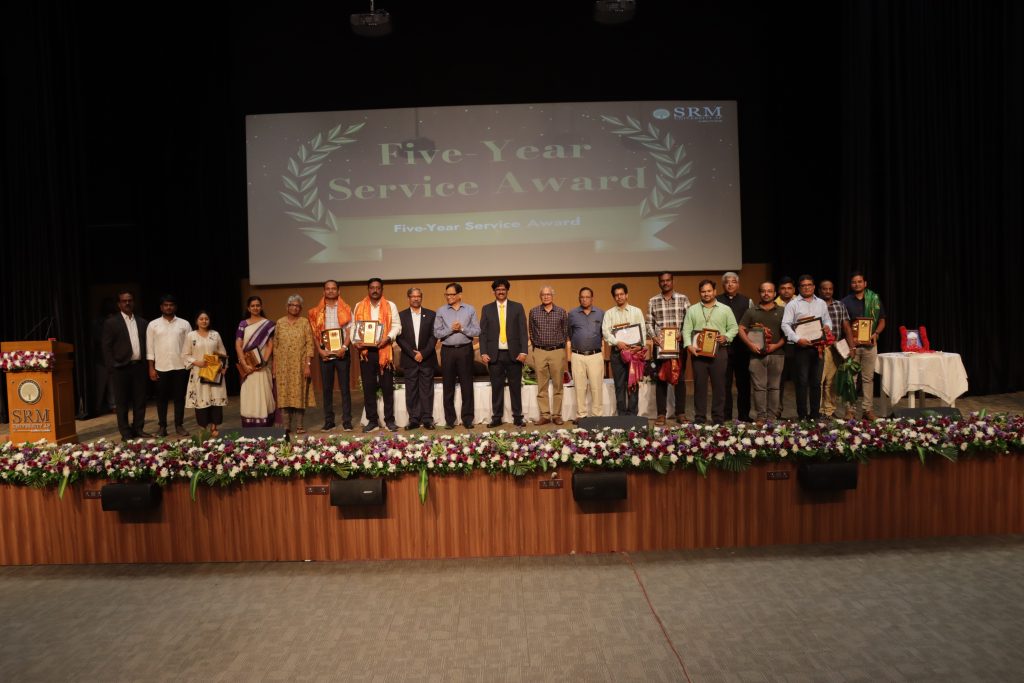
The event also featured the presentation of 22 Five-Year Service Awards to long-serving faculty members. Additionally, 10 faculty members were awarded the Popular Faculty Award. These awards underscored the institution’s commitment to celebrating and encouraging academic excellence.
In his message, Prof. D Narayana Rao, SRM Group Research Executive Director, highlighted the significant transformation in the global perception of India. Prof. Rao underscored that this progress ultimately boils down to the making of world-class scientists, innovators, and leaders, and the teachers play a crucial role in this aspect. Their influence is pivotal in fostering an environment where curiosity thrives and future breakthroughs are born.
The Teachers’ Day celebration reaffirmed the university’s belief that teachers are central to nurturing future generations and advancing knowledge for the betterment of society. At SRM University-AP, this commitment aligns with the institution’s vision of fostering innovation, driving cutting-edge research, and preparing globally competent graduates who contribute meaningfully to nation-building and societal progress.
- Published in News
Seven Students Selected for the JST Sakura Science Program
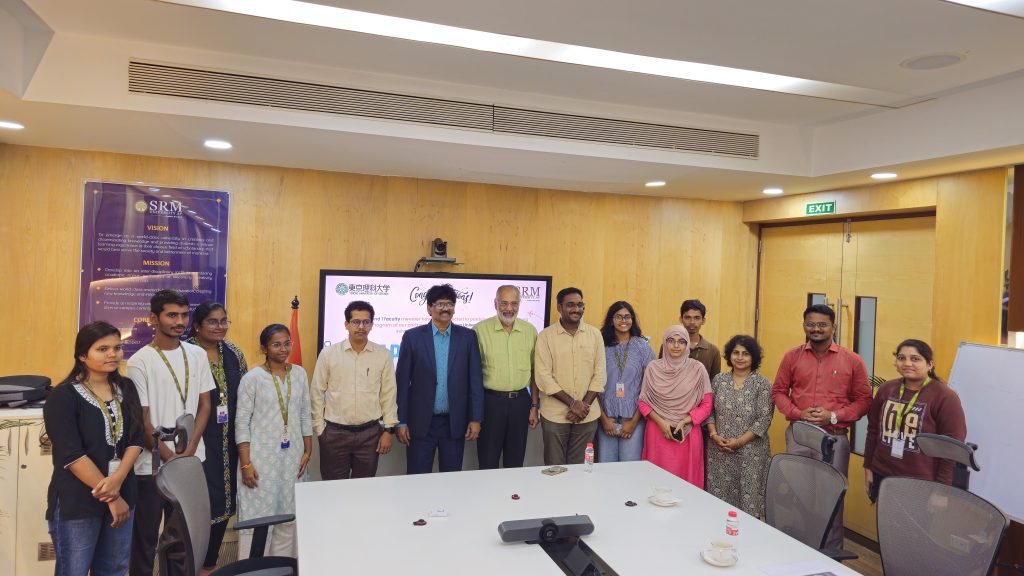
Anchoring one of the core objectives of providing global exposure through education, SRM University-AP is proud to announce that 7 students from B.Tech. Civil Engineering has been selected to the JST Sakura Science Program at Tokyo University of Science (TUS), Japan, scheduled from August 21-27, 2025. The Directorate of International Relations & Higher Studies held an event on August 13, 2025, to congratulate and brief the selected participants on their upcoming visit to TUS.
Prof. Ch Satish Kumar, Pro Vice-Chancellor, congratulated all selected participants and expressed pride in their achievement. He encouraged them to actively engage during the program and provided valuable guidance on maximising learning and cultural exposure in Japan.
During the event, Dr Lakshmi Narasimhan, Director (i/c) – IR&HS, and Dr Sudeshna Saha, Assistant Director – IR&HS, gave an overview of the JST Sakura Science Program and highlighted SRM AP’s collaborations with TUS and other Japanese universities. The IR&HS team also briefed participants on pre-departure requirements, travel preparations, and program-specific dos and don’ts to ensure smooth participation and representation of SRM AP abroad.
The meeting concluded with encouragement from all leadership members, emphasising the importance of representing SRM University-AP with excellence in both academic and cultural engagements during the visit.
The seven selected students – Ms Nithya Vattikuti, Ms Mullangi Lahari, Ms Shaik Sumaya Amreen, Mr Varikunta Hitheshwara Raju, Ms Vishakha Patel, Ms Mallela Durga and Mr Shaik Khadeer – will be accompanied by Dr Raghava Tulasi Pranav Peddinti, Assistant Professor, Department of Civil Engineering.
A Tribute to the Nation’s Past – 79th Independence Day Celebrations at SRM AP
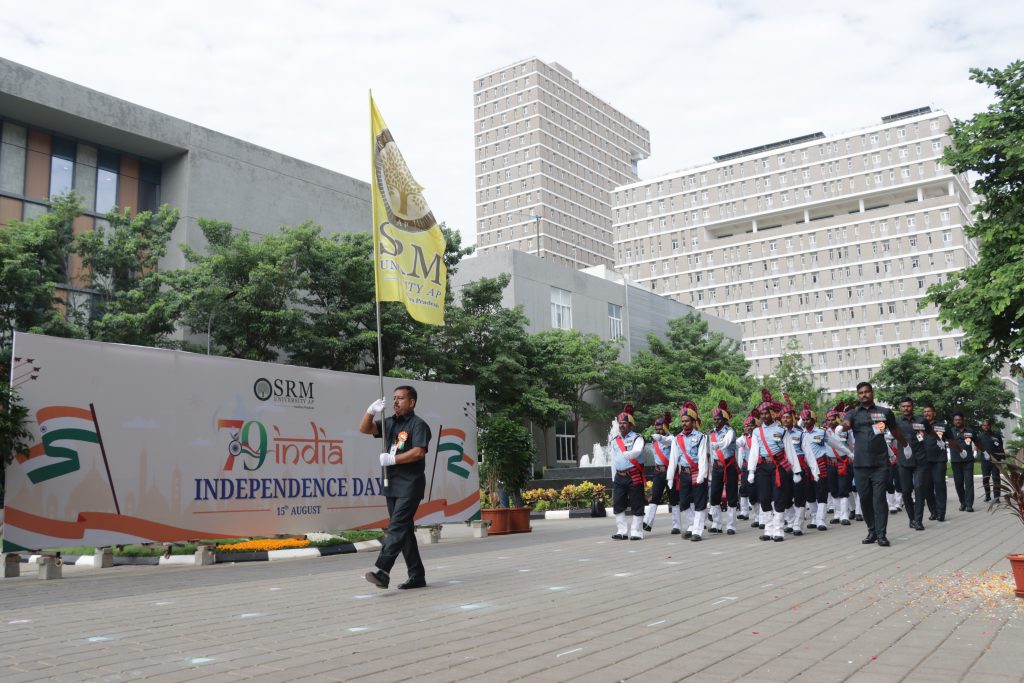
SRM University-AP celebrated the 79th Independence Day of India with great national pride and fervor. The celebrations featured the hoisting of the national flag by Vice Chancellor, Prof. Manoj K Arora, cultural programmes, felicitation of student athletic champions who secured national-level and state-level medals in various championships and honouring the staff who have completed five years of dedicated service to the university. The event was graciously attended by the Pro-Vice Chancellor, Prof. Ch Satish Kumar, Registrar, Dr R Premkumar, Deans of all schools, Directors, faculty, staff and students.
In his Independence Day address, Prof. Arora spoke of the collective dream of seeing India as a developed nation through the Viksit Bharat Yojna by 2047, stressing the importance of economic, social, and environmental sustainability on campus. Calling youth, the greatest resource of the nation, he drew attention to SRM AP’s mission to provide “holistic, inclusive, and adaptive” education that shapes students into global citizens. He encouraged embracing technology in education, reimagining learning with AI, and adopting the philosophy to “learn, unlearn, and relearn.”
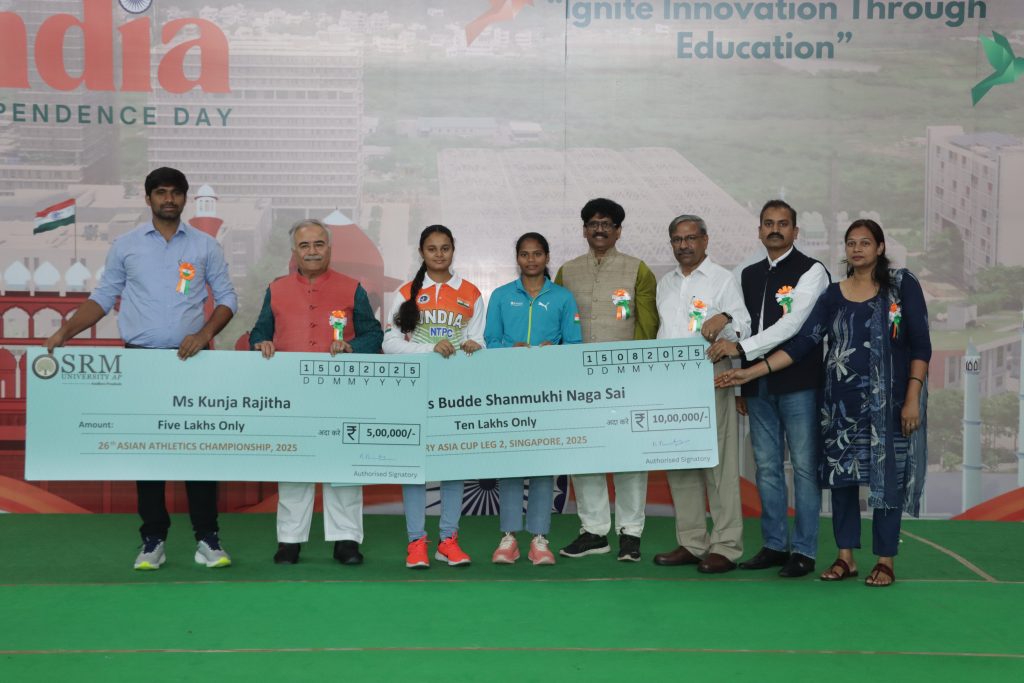
The university also honoured the remarkable achievements of the students in the field of sports. Ms Kunja Ranjita (B.Com. 1st year), winner of a Gold Medal in the Women’s 4×400m Relay at the 26th Asian Athletics Championship, was presented with a cash award of ₹5 lakhs along with Ms Budde Shanmukhi Naga Sai (B.Com. 1st year), who broke two world records and secured three silver medals in Compound Archery at the Singapore 2025 Asia Cup Leg 2, who received a ₹10 lakh award. The event also witnessed the felicitation of non-teaching staff members with mementoes who completed five years of service for their long-standing contributions to the university.
Cultural programmes by the students and staff, including a yoga demonstration, semi-classical dance performance, short skit and melodious songs showcased India’s artistic diversity and its values, resonating the true patriotic spirit.
The 79th Independence Day celebrations at SRM University-AP were a tribute to the nation’s past, a celebration of its present, and an inspiration for its future.
- Published in News
A Smart System for Optimised AAV Localization
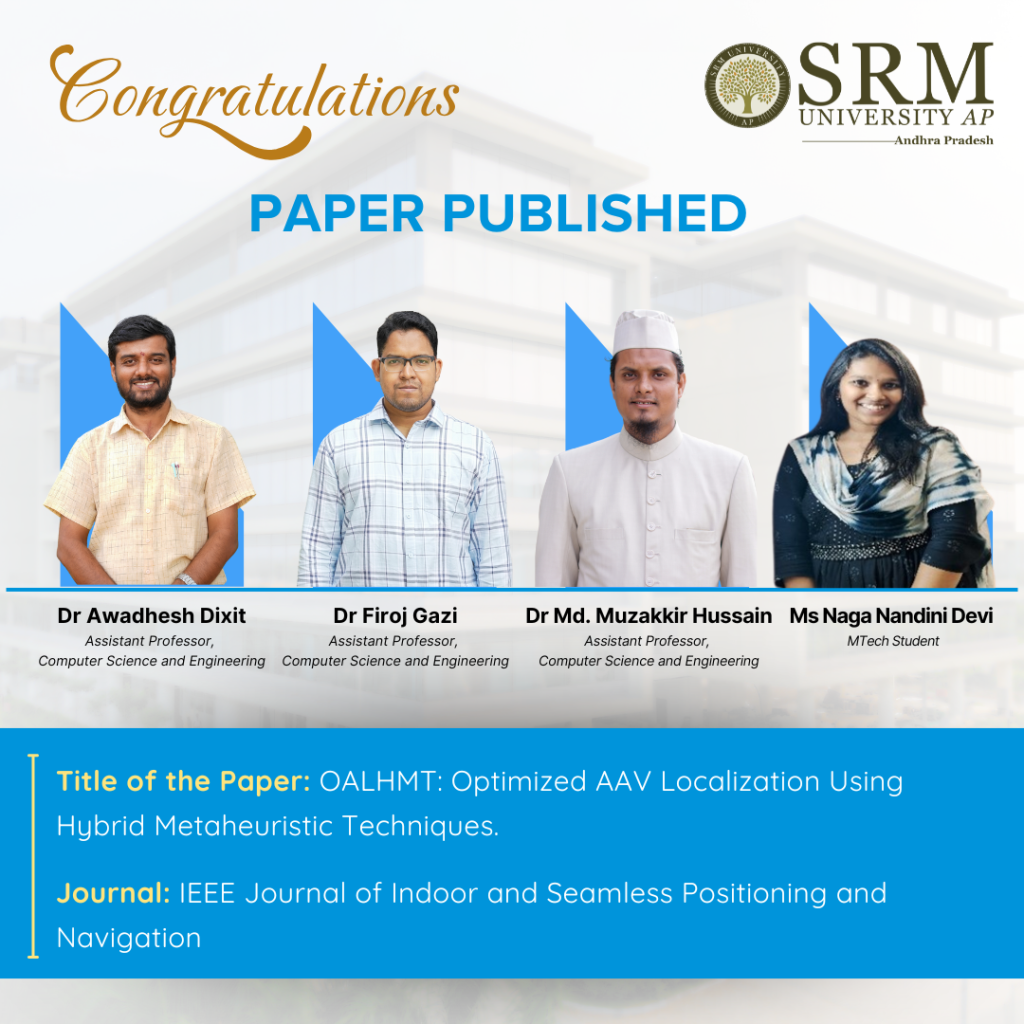
By combining Particle Swarm Optimisation (PSO) and Fuzzy Logic, the team at SRM AP has discovered a hybrid smart system for accurate localization of autonomous aerial vehicles (AAVs). Dr Awadesh Dixit, Dr Firoj Gazi, Dr Muzakkir Hussain Md, Assistant Professors and MTech student Ms Naga Nandini Devi from the Department of Computer Science and Engineering, have published their research article “OALHMT: Optimised AAV Localization Using Hybrid Metaheuristic Techniques” in the IEEE Journal of Indoor and Seamless Positioning and Navigation, that discloses the making and implementation of this smart system that is precise and works better than current methods for positioning and navigation.
Abstract
Accurate localization remains a critical challenge for autonomous aerial vehicles (AAVs) due to their high-speed, multidirectional movement. Precise positioning is essential for efficient resource management and task reallocation during flight. This research proposes a bioinspired hybrid model combining Particle Swarm Optimization (PSO) with fuzzy logic to enhance AAV localization accuracy. PSO effectively explores the search space to identify optimal positions, while fuzzy logic fine-tunes the solution using real-time environmental inputs such as signal strength, sensor noise, and GPS inaccuracies. This synergistic approach leverages PSO’s global optimization with the contextual adaptability of fuzzy systems, delivering robust and precise localization under dynamic and noisy flight conditions. Comparative evaluations with existing methods demonstrate the model’s superior accuracy and responsiveness in real-time AAV operations.
Practical Implementation/Social Implication of the Research
Proposed hybrid optimization for Indoor localization through swarm UAVs, localization methods for autonomous aerial vehicles (AAVs) typically rely on the global positioning system (GPS), which is effective in open environments. GPS provides accurate real-time positional data, making it widely used for outdoor AAV localization.
The team will continue to focus on developing swarm-based V2X communication and coordination, and reduced interference, secure communication for enhance UAV networks performance, advance AI-related applications.
Link to the article
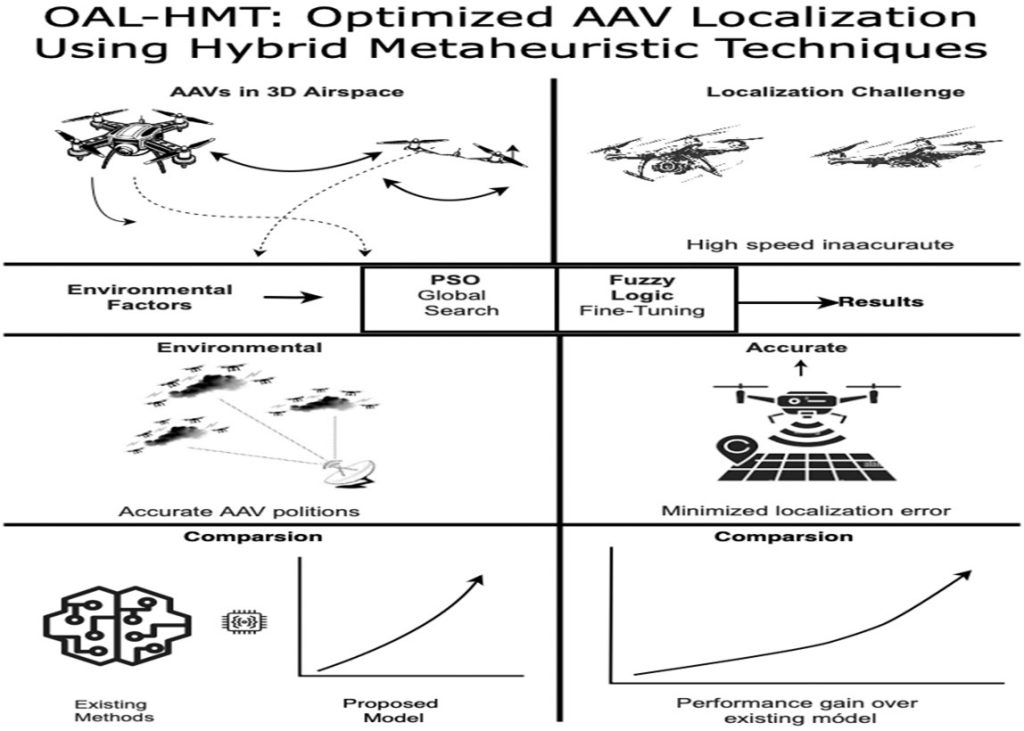
Overall abstract diagram of the paper
- Published in CSE NEWS, Departmental News, News, Research News


